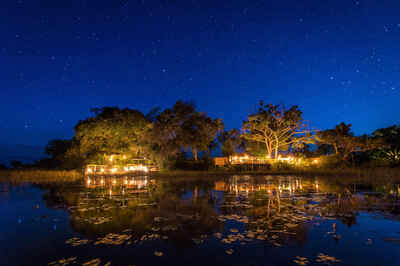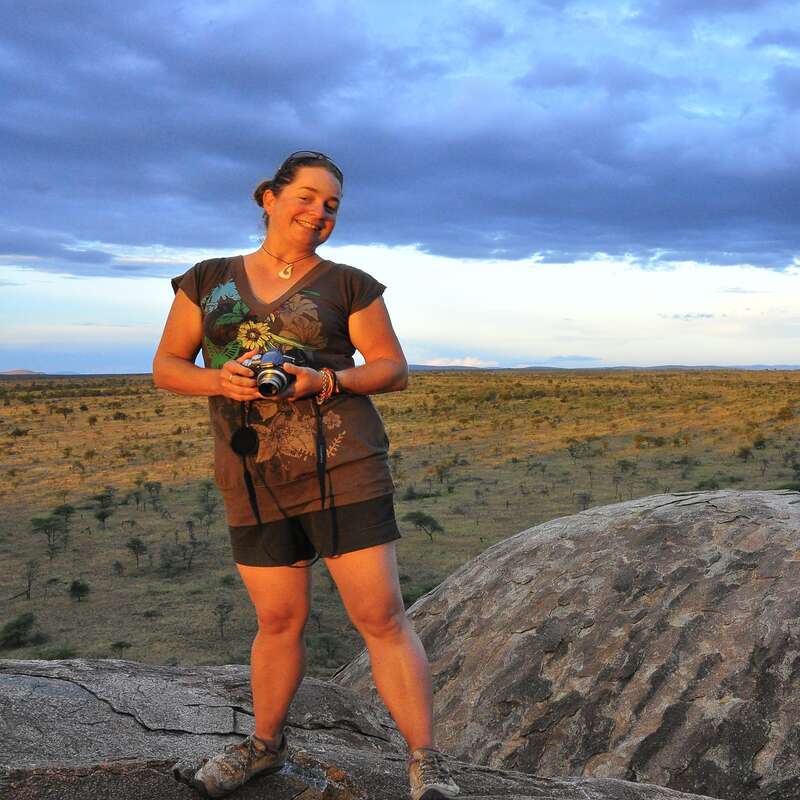About Pelo Camp
Situated on a small island deep inside the Okavango Delta, Pelo Camp is Jao Concession's newest lodge, opened ...
... in mid-2013. It is surrounded by permanent, open floodplains, so focuses on water-based activities – and primarily excursions by mokoro (traditional dug-out canoe).
Pelo Camp offers a charming, rustic experience with an emphasis on water-based activities. While it will probably disappoint travellers hoping to spot lion and leopard around every corner, its greatest appeal lies in its varied birdlife and picturesque scenery. It is well suited to adventurous travellers looking to explore the waterways of the Okavango Delta, and would also suit those looking to unwind for a couple of days and connect with the idyllic surroundings. This special little camp is great value and would be a lovely compliment to a camp with a focus on bigger game.
Our view
Pelo Camp offers a charming, rustic experience with an emphasis on water-based activities. While it will probably disappoint travellers hoping to spot lion and leopard around every corner, its greatest appeal lies in its varied birdlife and picturesque scenery. It is well suited to adventurous travellers looking to explore the waterways of the Okavango Delta, and would also suit those looking to unwind for a couple of days and connect with the idyllic surroundings. This special little camp is great value and would be a lovely compliment to a camp with a focus on bigger game.
Accommodation
5 tents
Children
Best for 16+.
Open
Usually March to November
Activities

4WD Safari

Birdwatching

Boat trip

Fishing

Guided walking safari

Helicopter

Mokoro

Night drive

Private activities
Traveller reviews of Pelo Camp
11 real, un-edited reviews from Expert Africa's travellers.
Arrived 6 Jun 2024, 3 nights
"Pelo Camp review"
Overall rating: Excellent
Arrived 23 Oct 2023, 3 nights
"Pelo Camp review"
Overall rating: Excellent
Arrived 22 Nov 2022, 3 nights
"Pelo Camp review"
Overall rating: Good
Arrived 21 Jul 2022, 3 nights
"Pelo Camp review Good substitute for Jacana"
Overall rating: Excellent
Arrived 28 Sep 2019, 2 nights
"Pelo a lovely small camp"
Overall rating: Excellent
Arrived 28 Jul 2019, 2 nights
"Pelo, a lovely island camp"
Overall rating: Good
Arrived 16 Sep 2017, 3 nights
"Pelo Camp review"
Overall rating: Excellent
Arrived 27 Aug 2017, 2 nights
"A world apart at Pelo Camp"
Overall rating: Excellent
Arrived 21 Sep 2015, 3 nights
"Pelo Camp review"
Overall rating: Excellent
Arrived 8 Jun 2015, 2 nights
"Pelo Camp review"
Overall rating: Excellent
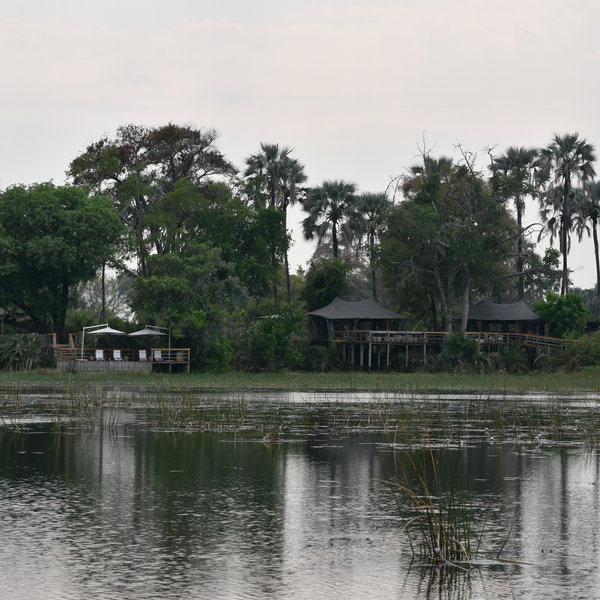
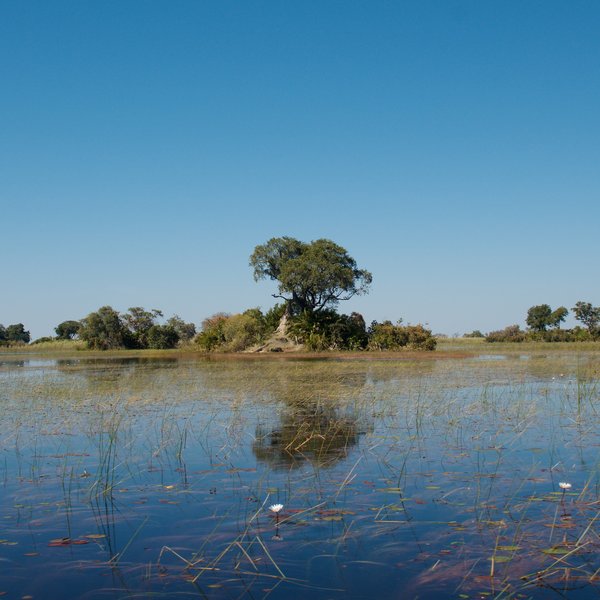
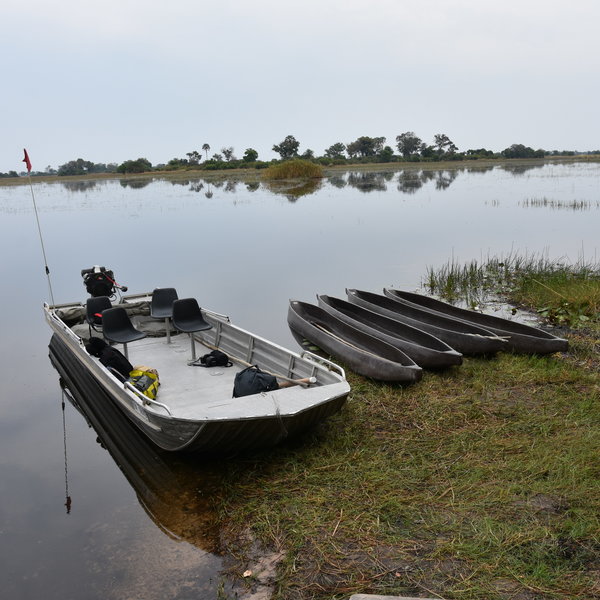
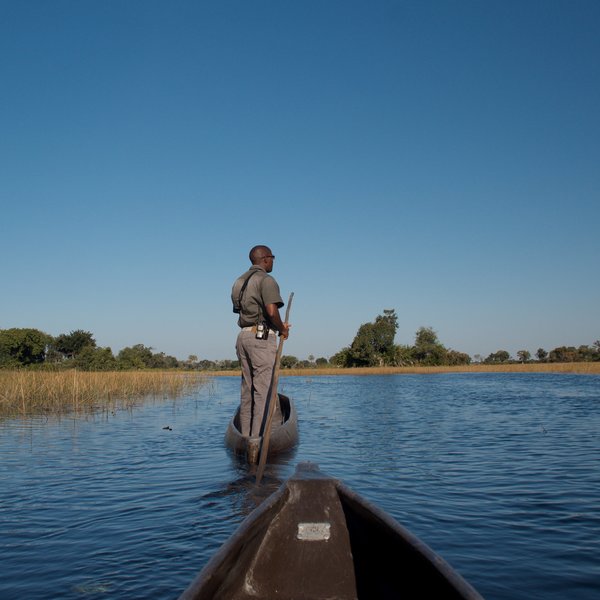
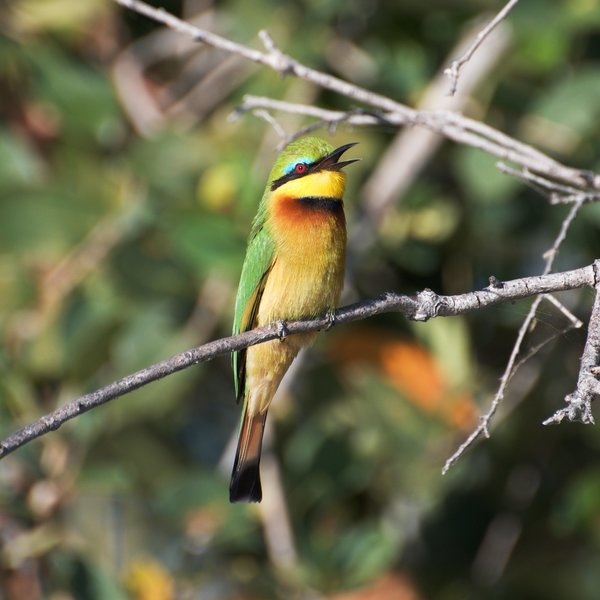
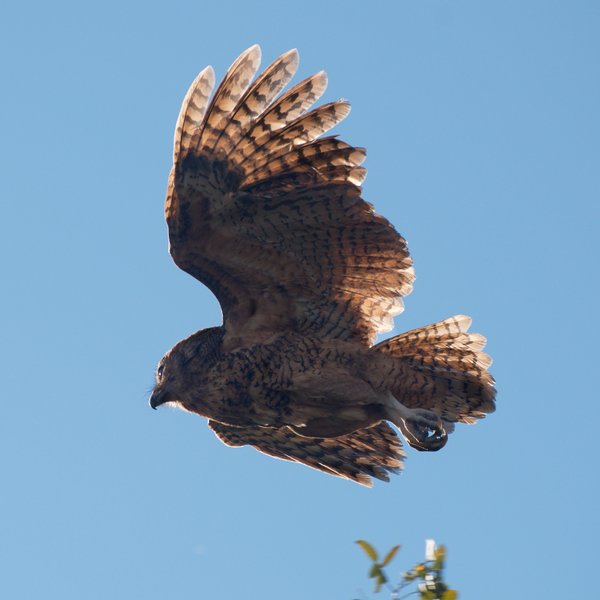
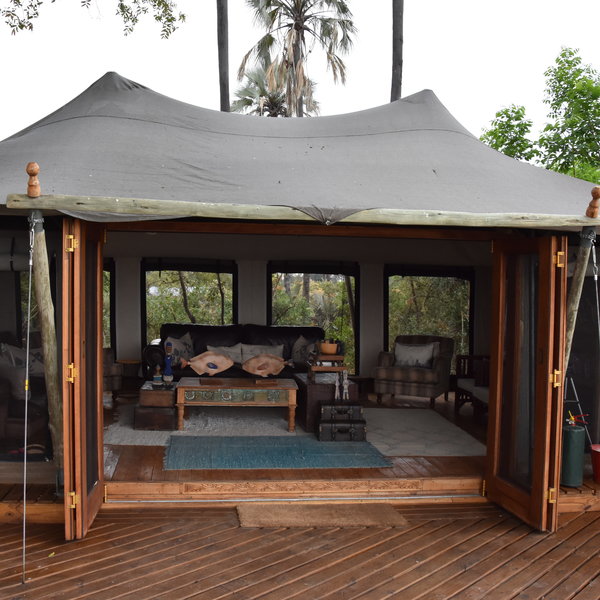
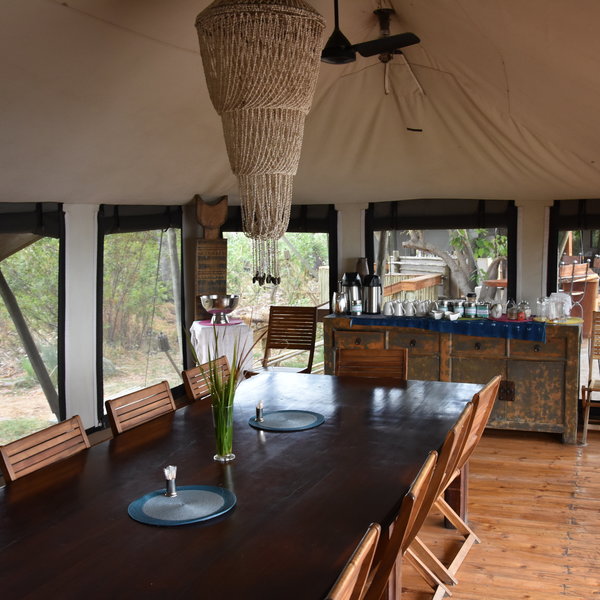
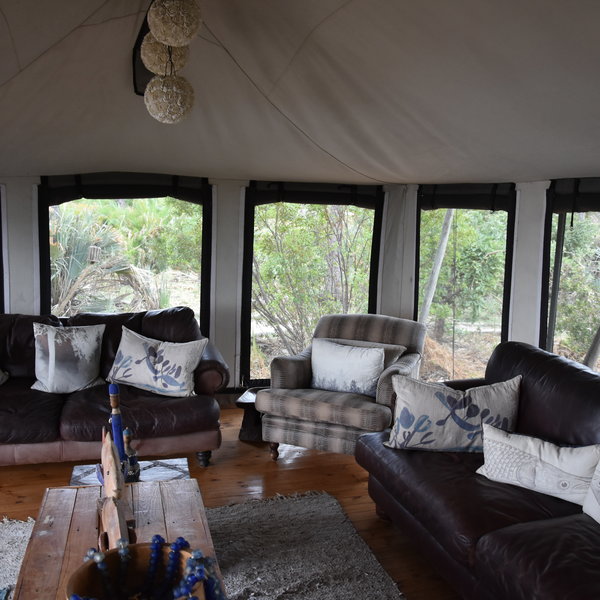
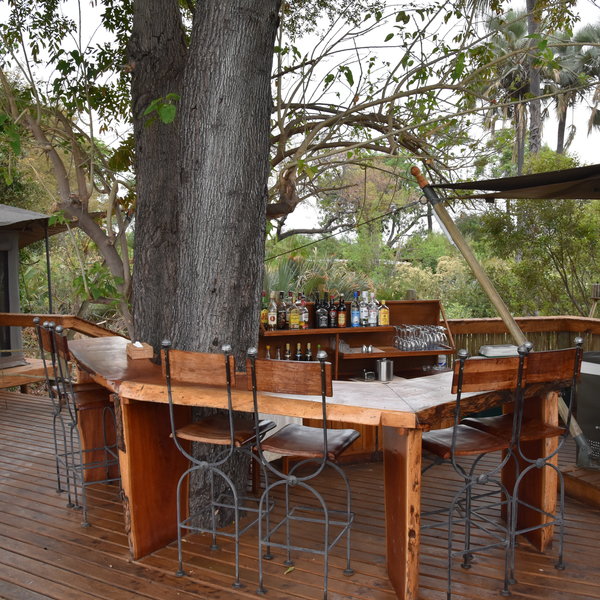
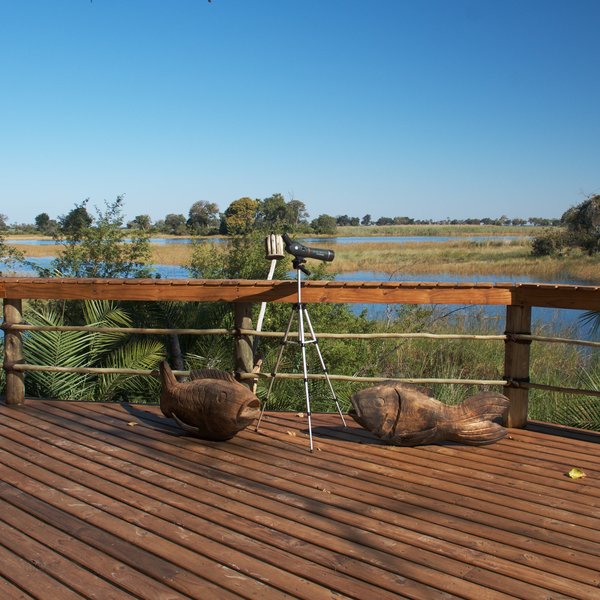
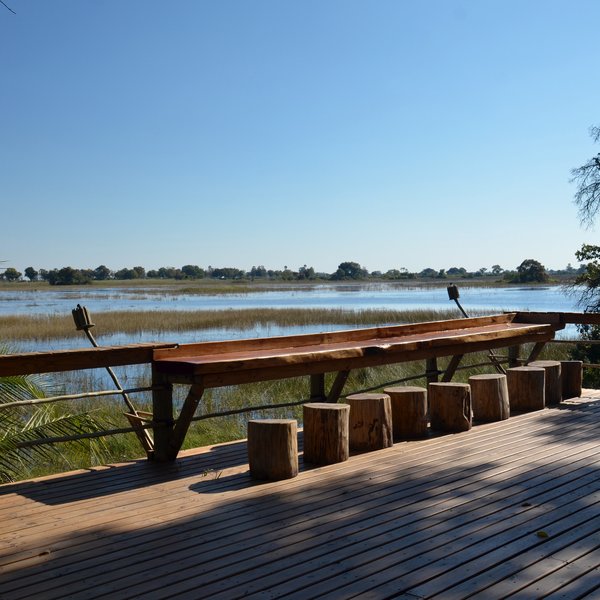
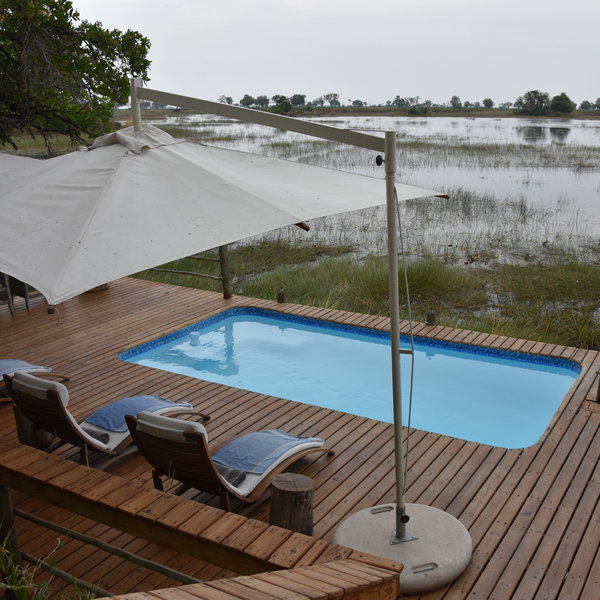
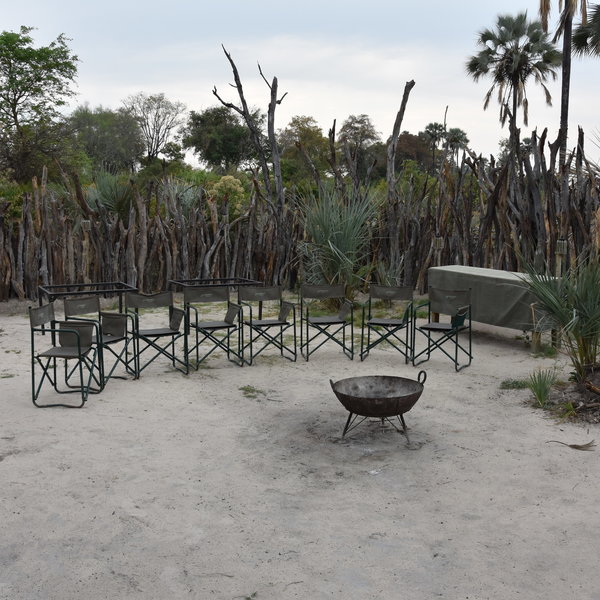
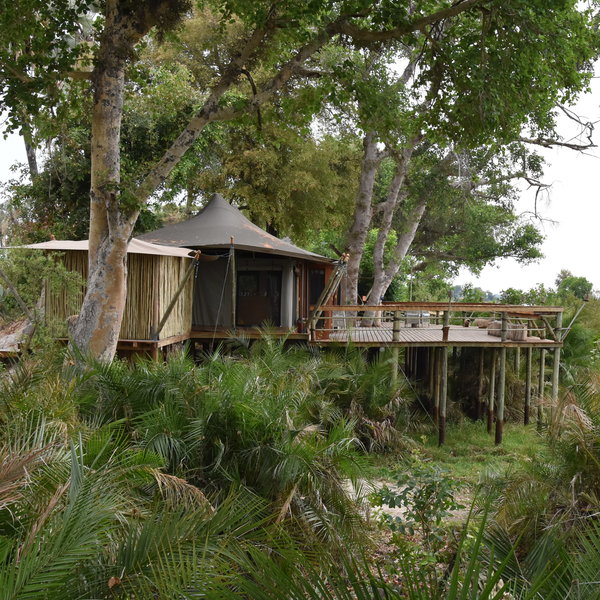
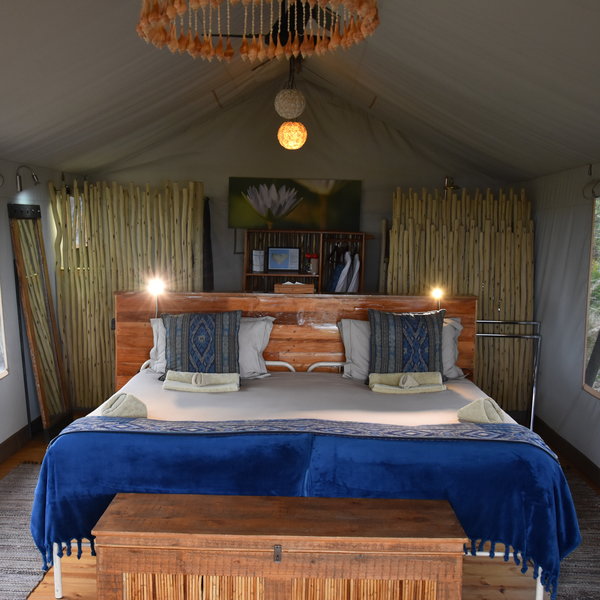
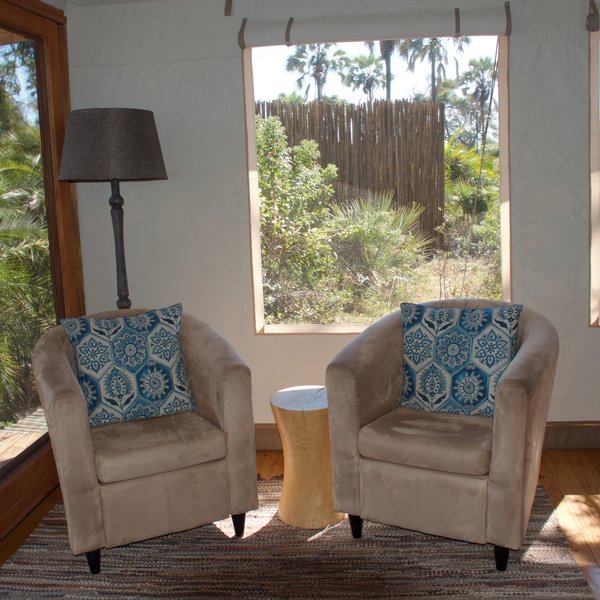
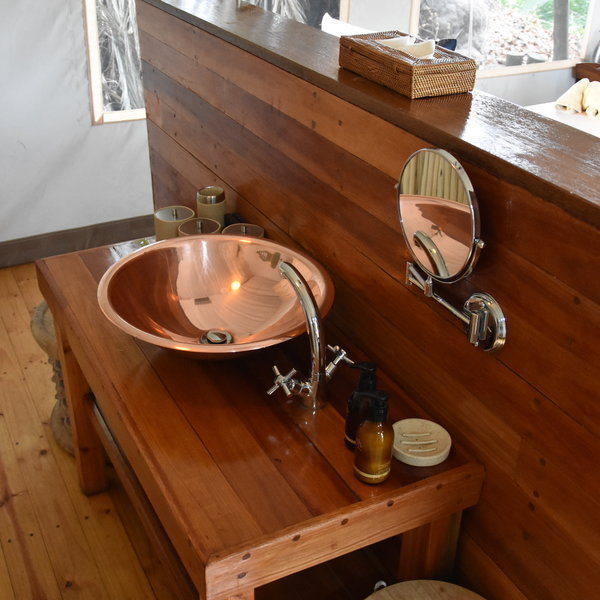
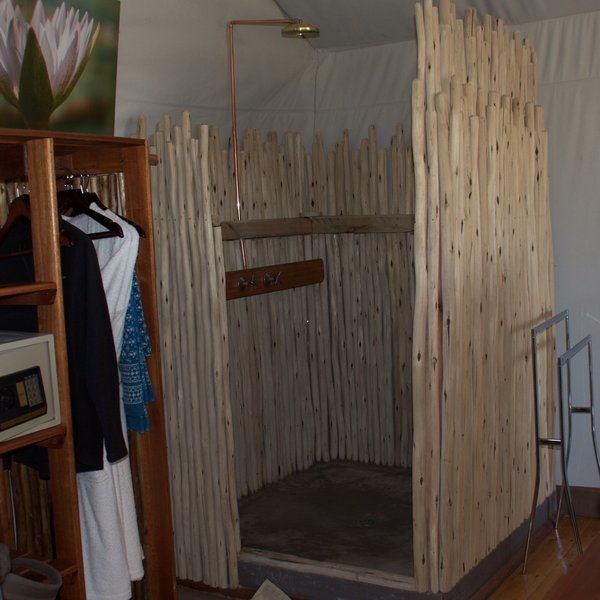
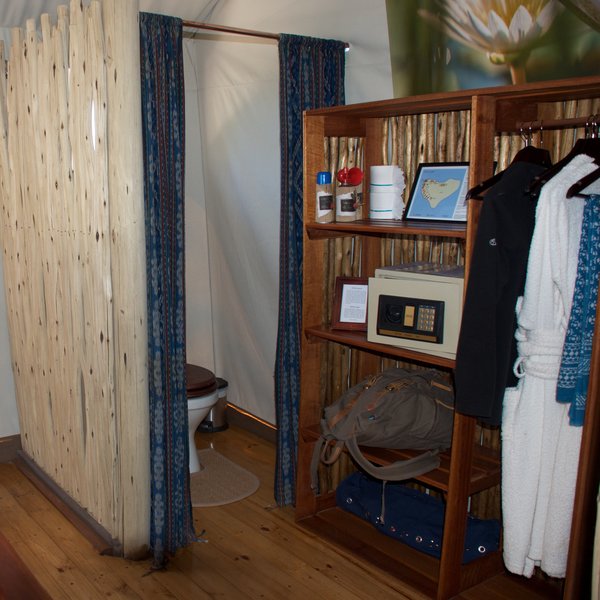
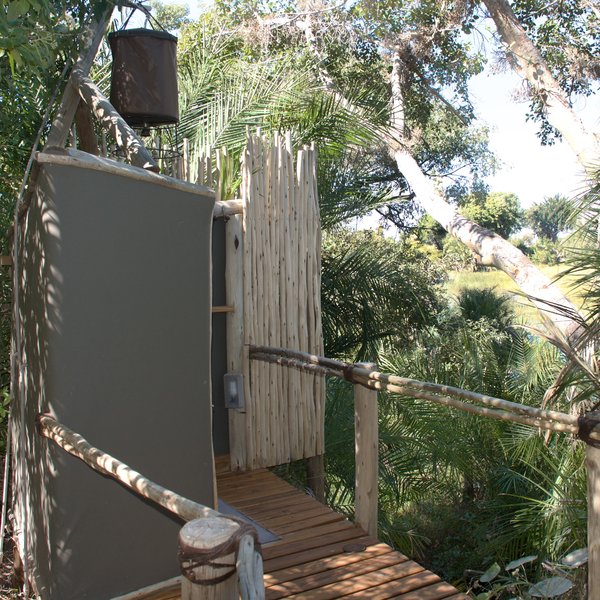
Expert Africa's gallery
When we travel we take lots of photos ourselves to give you a real and un-edited view of the safaris. See our 33 pictures of Pelo Camp to get the candid view.
View gallerySafaris visiting Pelo Camp
Just ideas, we'll always tailor-make a trip for you
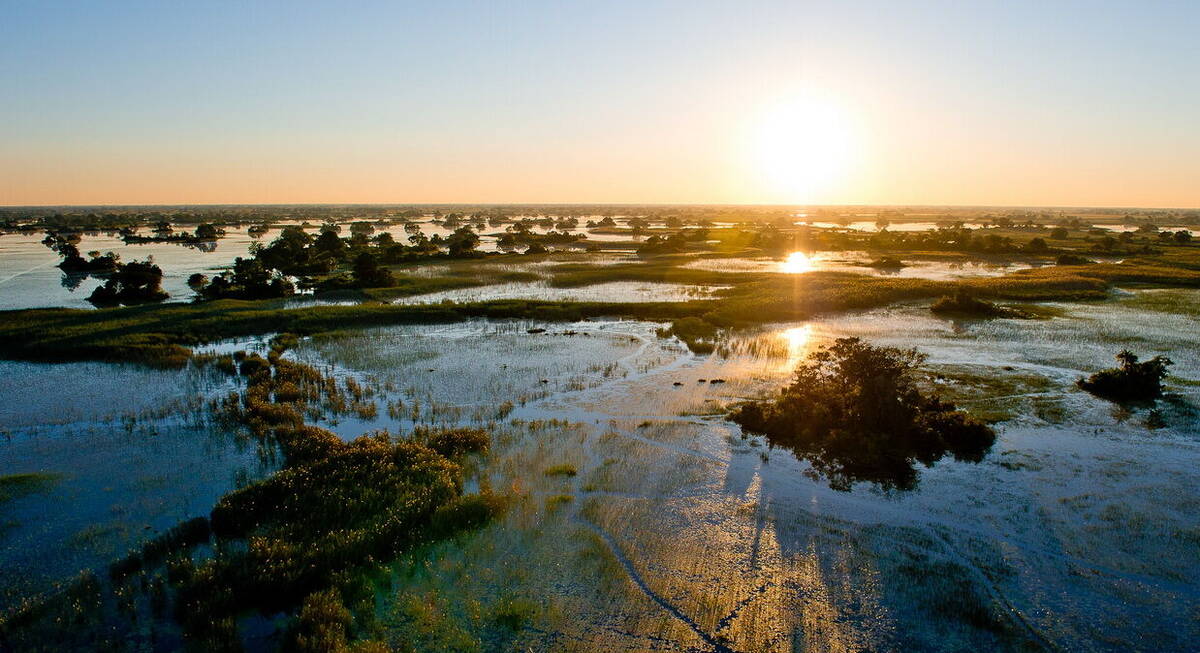
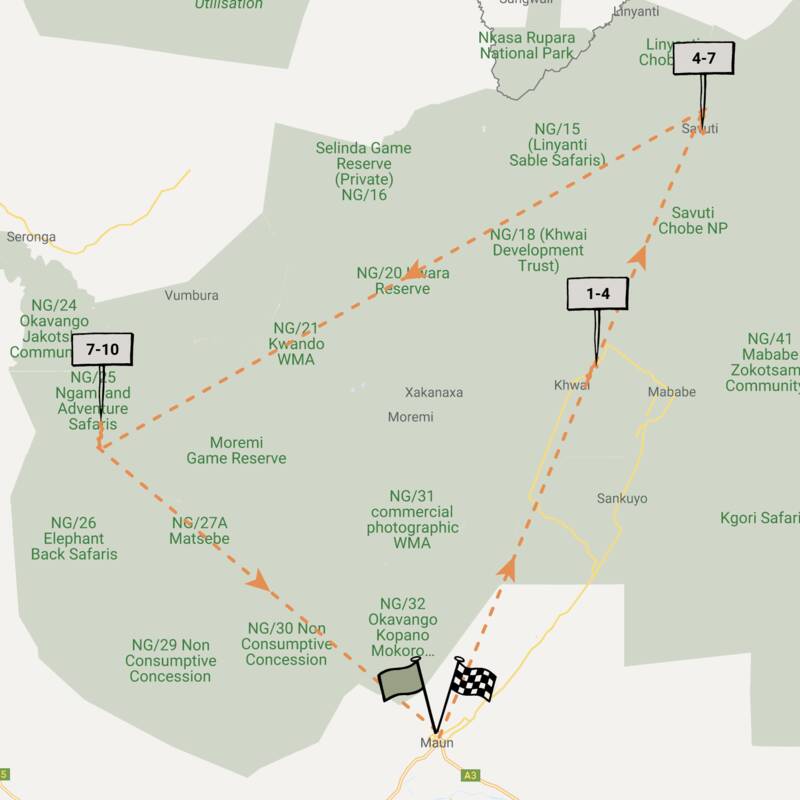
Steenbok Safari
9 days • 3 locations • 1 country
MAUN AIRPORT TO MAUN AIRPORT
A classic Botswana safari exploring the Moremi, Chobe National Park and Okavango Delta. Excellent wildlife viewing and a variety of activities from three of our favourite traditional tented camps.
Visiting Chobe, Okavango Delta and 1 other area
US$8,920 - US$13,480 per person
Pelo Camp: Our full report
Situated on a small island deep inside the Okavango Delta, Pelo Camp is Jao Concession's newest lodge, opened ...
... in mid-2013. It is surrounded by permanent, open floodplains, so focuses on water-based activities – and primarily excursions by mokoro (traditional dug-out canoe).
Pelo's remote location, fine white sandy soil, shady palm trees and lush riverine vegetation combine to lend the camp a paradise island feel that one more often associates with a beach getaway. This impression is picked up by the cream and blue décor throughout the camp that is simple, bright and fresh. Little heart shaped decorations add a sweet touch too and are a reflection of the island's Setswana name, which means heart-shaped island.
The raised main area of Pelo consists of two separate tents, just a short distance apart. In the dining tent you'll find a tea and coffee station, and a long table where brunch and dinner are eaten communally. The lounge tent has a couple of leather sofas and some comfortable chairs arranged around an old chest that doubles as a coffee table. A small bookcase houses a few books on the flora and fauna of the Delta. Next to the lounge is a small semi-circular bar built around some trees, where there's a water cooler for guests to fill up their complimentary water bottles before heading out on activities.
Connecting the dining room and lounge tents is a large wooden deck that has uninterrupted views of the surrounding waterways and conveniently faces west to enjoy the sunet. In the other corner is a beautiful breakfast bar that faces the opposite direction and the sunrise, and in the middle of the deck a huge sycamore fig tree provides much-needed shade in the heat of the day. There's a spotting scope here to help you home in on the many water birds in this area, or even hippos and the occasional elephant crossing between the islands.
A short sandy path brings you to a raised platform built around an old anthill, where a central firepit is lit every evening for pre-dinner drinks. A few steps down from here towards the water's edge is a small pool with fantastic views across the adjacent floodplain. This is a beautiful spot to relax, and to cool off in the hotter months.
More sandy paths lead to Pelo's five reasonably spacious tents – four twins and one double – which are simple but comfortable in design. All are well spread out, and sheltered from each other by the thick palm foliage of the island. Each tent is raised on a low wooden deck and entered through a covered veranda at the front.
In the centre of the room, the bed faces out over the water, with small bedside lights attached to the freestanding wooden headboard. At the foot of the bed, a selection of reading material sits on a large wooden chest, which can also double as a handy space for storing luggage. Lamps made out of shells, or in the shape of water lilies, and towels folded into heart-shapes, add a sweet touch, while big mesh windows and a ceiling fan help to give a lovely light and airy feel.
Each tent also has a couple of cosy tub chairs and a writing table with a charging station for batteries and other equipment. A tea and coffee station includes a flask of hot water that is usually brought twice a day.
At the rear of each tent, the bathroom area has an en-suite flushing toilet to one side and a shower with plumbed hot and cold water to the other. Wood baton screens partially enclose both, but since the shower has no curtain it doesn't afford much privacy. Directly behind the bed, set into a wooden table, is a single copper basin with cold running water. A selection of toiletries is provided including shower gel, shampoo, and body lotion. There's also a free-standing wardrobe here which contains a small safe, insect repellent for both the room and the body, a kikoi (wrap), dressing gowns, a yoga mat, resistance bands and some light weights.
At the front of each tent is a deck overlooking the lagoon, to one side there is an outdoor shower overlooking the water and to the other is a table and chairs providing a peaceful spot to enjoy the views and birdlife. On our most recent visit in October 2017 we did not stay overnight but when we last did in July 2016, we happily whiled away the afternoon watching the comings and goings of white-browed robin-chats, arrow-marked babblers, swamp boubous, and dark-capped bulbuls in the bushes surrounding the veranda. At the same time, we kept a beady eye trained on the Pel's fishing owl nest in the fork of a tree directly in front of our tent, and were rewarded with a fabulous sighting when it took a break from parent duties to stretch its wings and flew obligingly to a tree close to the outdoor shower!
In keeping with its island location Pelo does not have access to game-drive areas. Instead, the camp's main attractions are mokoro activities. Your guide will pole the mokoro expertly through the reeds, giving you the opportunity to appreciate the smaller creatures and birds, as well as to learn about the formation of the Delta, and the role played by key species like elephant and hippo in creating islands and maintaining waterways. On our most recent visit the birding was notable, with sightings of endangered species such as lesser jacana, slaty egret and wattled crane, as well as many other water birds including malachite kingfisher, rufous-bellied heron, green-back heron, pygmy geese, glossy ibis, black crake, black-winged stilt, and osprey.
Mammal species around Pelo include elephant, hippo, otters, lechwe and reedbuck, and on a previous visit in October 2013 we had a particularly good sighting of the elusive sitatunga.
Boat trips are also offered here and because of specially adapted ‘mud-buddy’ engines that are fitted to the boats they are able to do these throughout the year. Focusing on deeper sections when the water levels are lower. From around September, the water levels recede and the surrounding floodplains start to dry out, meaning many animals can move more freely. So, if you visit between September and November, you are more likely to see much larger herds of lechwe than earlier in the year, as well as occasional leopard and wild dog. Guided walks are also possible here, although it is advisable to request this in advance to ensure that a qualified walking guide is available.
The pace of activities at Pelo is a little slower than at many lodges that focus on bigger game. Typically, the day here starts with a relatively leisurely wake up call at around 06:00-6.30am, and in the evenings you are always back in camp by sunset.
Geographics
- Location
- Okavango Delta Safari Reserves, Botswana
- Ideal length of stay
- We’d recommend a stay of two nights at Pelo to enjoy the mokoro excursions both in the morning and in the evening.
- Directions
- Most guests fly by light aircraft from Maun or other safari camps to Jao airstrip, then are transferred to Pelo by boat. The boat transfer into camp takes approximately 45 minutes to an hour.
Boat transfers are also possible from other camps in the Jao Concession. - Accessible by
- Fly-and-Transfer
Food & drink
- Usual board basis
- Full Board & Activities
- Food quality
- The food at Pelo is unpretentious and – although we did not get a chance to try any on our most recent visit in October 2017, from previous visits in 2013 and 2016– very tasty indeed. With advance notice the camp can cater for vegetarian and many other dietary requirements.
The day usually starts with a light breakfast of toast, cereal, fruit, yoghurt, cold meats and cheeses, and fresh muffins (we had delicious chocolate chips ones), along with tea and coffee, which is served prior to your early morning activity.
Brunch is served after the morning activity. In October 2013 this included a plated meal of pork ribs and sausage with a selection of vegetables, along with a range of cold salad dishes and bread.
For Afternoon tea, served at around 3.30pm, we had chocolate brownies drenched in chocolate sauce and mini puff-pastry tarts filled with caramelised onion and brie. This was accompanied by iced tea, and tea and coffee.
Dinner is usually a plated starter and dessert with a buffet-style main course. On our last visit we had a creamy mushroom soup to start. This was followed by a main course of beef steak, potato wedges, pattypan and roast butternut squash, and green beans, with a lemon pudding to finish. - Dining style
- Group Meals
- Dining locations
- Indoor Dining
- Further dining info, including room service
- Private meals can be arranged for special occasions.
- Drinks included
- Beers, house wines, local spirits and soft drinks are included, but note that champagne, imported wines and premium-brand spirits will be at additional cost.
Special interests
- Birdwatching
- Located in the Jao Concesion, birding is exceptional at Pelo Camp. Birds typical of wetlands such as wattled crane and lesser jacana are found on the eastern side, with the western drier areas hosting woodland species such as Dickinson Kestrel.
- See ideas for Birdwatching in Botswana
Children
- Attitude towards children
- Children over the age of 13 years are welcome at Pelo.
Children younger than six may be accepted by special arrangement, but only if the entire camp is reserved for exclusive use. Note, however, that children must be 13 years and over to take part in all of the activities.
Children under 17 must share a room with an adult. - Property’s age restrictions
- No under 13s
- Special activities & services
- There are no special activities or services.
- Equipment
- None
- Generally recommended for children
- We think that Pelo is unsuitable for children under the age of 16 years; there are other camps in the Okavango more suited to younger children.
However, Pelo is such a small camp that a party of ten people, including children, could have exclusive use of it without any extra charges – making it a great choice for one large family or group. Since you would be using the whole camp, you would have ultimate flexibility and private activities at no extra cost – although children under 13 would still not be permitted to take part in activities. - Notes
- Pelo is unfenced, and dangerous wildlife, including leopard, are known to regularly move through camp. The tents are at ground level. Children must be under the constant supervision of their parents.
Our travellers’ wildlife sightings from Pelo Camp
Since mid-2018, many of our travellers who stayed at Pelo Camp have kindly recorded their wildlife sightings and shared them with us. The results are below. Click an animal to see more, and here to see more on our methodology.

100% success

100% success

100% success

83% success

80% success

80% success

80% success

67% success

40% success

40% success

20% success

0% success

0% success

0% success

0% success

0% success

0% success

0% success
Communications
- Power supply notes
- Generator
- Communications
- There is no cellphone reception, no direct phone or fax and no email. Communication is maintained with the head office in Maun via radio.
- TV & radio
- There is no TV or radio.
- Water supply
- Borehole
- Water supply notes
- The water comes out of the Delta and is then purified through reverse osmosis for guests. There is also bottled water available for guests.
Sustainability
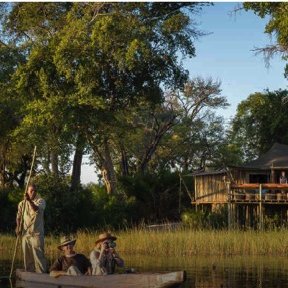
Re-inventing the ‘mokoro’ rides
Pelo or “heart” in Setswana is one of the many camps situated in the Okavango Delta. The camp is named after the shape of the island it is located on, but what is truly standing out is its passion for sharing some of the local culture with guests. Tourists staying at Pelo Camp are offered an abundance of aquatic experiences to choose from. One of the most popular activities is however the Mokoro boat trip.
A Mokoro (mekoro, plural) is a dugout canoe-like vessel traditionally used by Botswana’s water bushmen as a means of transport which was now ‘reinvented’ for game viewing safari trips.
The journey on Mokoro takes guests through the small channels on the river and brings them closer to wildlife. The water channels are surrounded by papyrus reed with bee-eaters and bright coloured kingfishers manoeuvring around.
Originally, mekoro were constructed using tree trunks and hand-tools – a tedious and not at all sustainable practice – since timber rots in time, resulting in more trees having to be cut down.
However, the modern mekoro is crafted out using eco-friendly fibreglass which is lighter and easier to control on the waterway, but also more durable and long-lasting. This popular activity creates employment opportunities for local boat-men. The mokoro usually carries no more than one or two passengers, but each boat requires an additional boat-man to stand at the stern and push the mokoro forward using a long pole called a "ngashi".
Manually manoeuvred, the mokoro trip makes for a great photo expedition, benefiting from a reduced risk of scarring off the animals. Local guides are also highly knowledgeable and enjoy sharing stories about the amazing variety of birdlife and other animals roaming the surrounding valleys.
See more great sustainability projects in Botswana
Health & safety
- Malarial protection recommended
- Yes
- Medical care
- All management and guides are first-aid trained and there is a nurse on call (via radio) 24 hours a day. The nearest doctor is in Maun. Medical evacuation is available in case of emergency. Please note that it is only possible to fly out of camp during daylight hours as the bush airstrips do not have any lighting at night.
- Dangerous animals
- High Risk
- Security measures
- Guests are escorted to their tents after dark as dangerous wildlife is known to wander through the camp. A thorough safety briefing is given on arrival. ‘Fog horns’ are provided in the rooms to summon help in case of emergency.
- Fire safety
- There are fire extinguishers throughout camp.
Activities
4WD Safari
Birdwatching
Boat trip
Fishing
Guided walking safari
Helicopter
Mokoro
Night drive
Private activities
Extras
- Disabled access
- Not Possible
- Laundry facilities
- A laundry service is included. Laundry is collected in the morning and usually returned the same day, weather permitting. Detergent is provided in each tent for guests who wish to do a little hand washing.
- Money
- No exchange facilities are offered at Pelo. There are small safes in all the rooms, as well as a larger one in the office.
- Accepted payment on location
- Cash in the form of South African rand, GB sterling, US dollars, euros and Botswana pula is accepted, but note that any change will be given in pula.
Plan and book your trip with Expert Africa
All of our trips are tailor-made, so we'll always adapt them to suit you. Talk to an Expert and let us plan and arrange your perfect trip.

Talk to an Expert
Call or email us now! We’ll match you with the Specialist in our team who is best suited to help you. Then together we can start planning your trip.

Set up your itinerary
Based on our experience and your ideas, your specialist will create a detailed, costed itinerary. We’ll refine it together, until we have a trip that you’re perfectly happy with.

Prepare for your trip
The same Specialist will make the seamless arrangements for your trip, send you detailed travel documents, and be available to answer any questions before you depart.

Travel with peace of mind
After you set off, you’ll be cared for by our partners in Africa, most of whom have worked with Expert Africa for decades. And if you ever need us urgently, we’re available 24/7.

When you return
We love to learn about your trip, and so will always be grateful if you’ve the time to give feedback to your Specialist when you return.
Pelo Camp's location
Look closer at the environment and surroundings of Pelo Camp.
Excursions from Pelo Camp
Optional extra day-trips and excursions possible whilst you're staying at Pelo Camp. Talk to us: these are usually best arranged before you go.
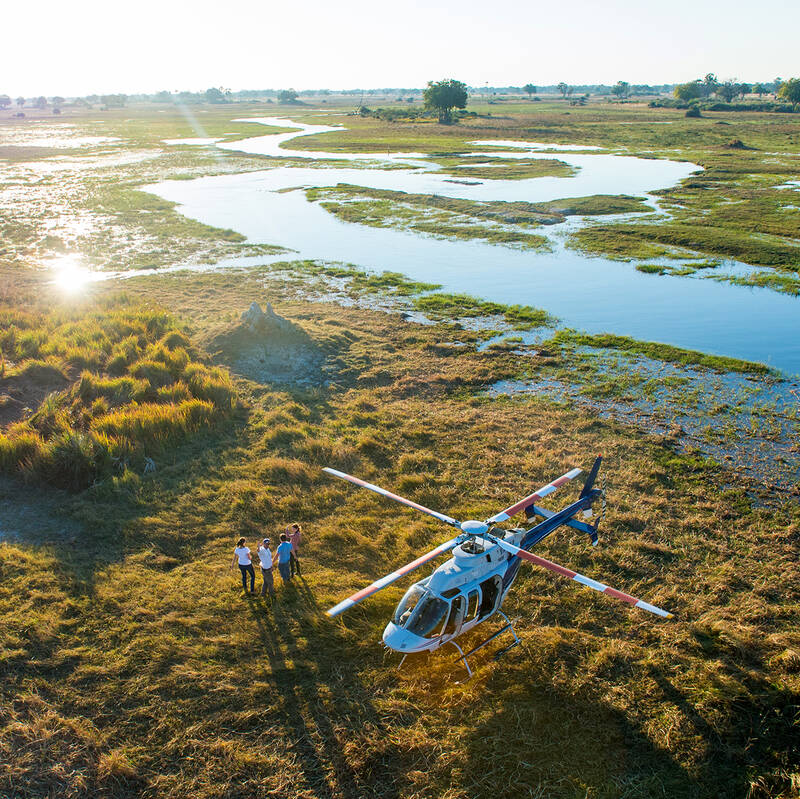
Helicopter Flight - Botswana
Various: from 30 minutes to half a day.
Low-flying, agile and offering superb views, helicopters are an ideal way to move around the Okavango Delta.You can use them instead of fixed-wing inter-lodge transfers or as an addition to other wildlife watching activities, and of course, helicopters can hover to allow that perfect pic, whereas fixed-wings can’t.
More about Helicopter FlightOther lodges in Okavango Delta Safari Reserves
Alternative places to stay in this same area.
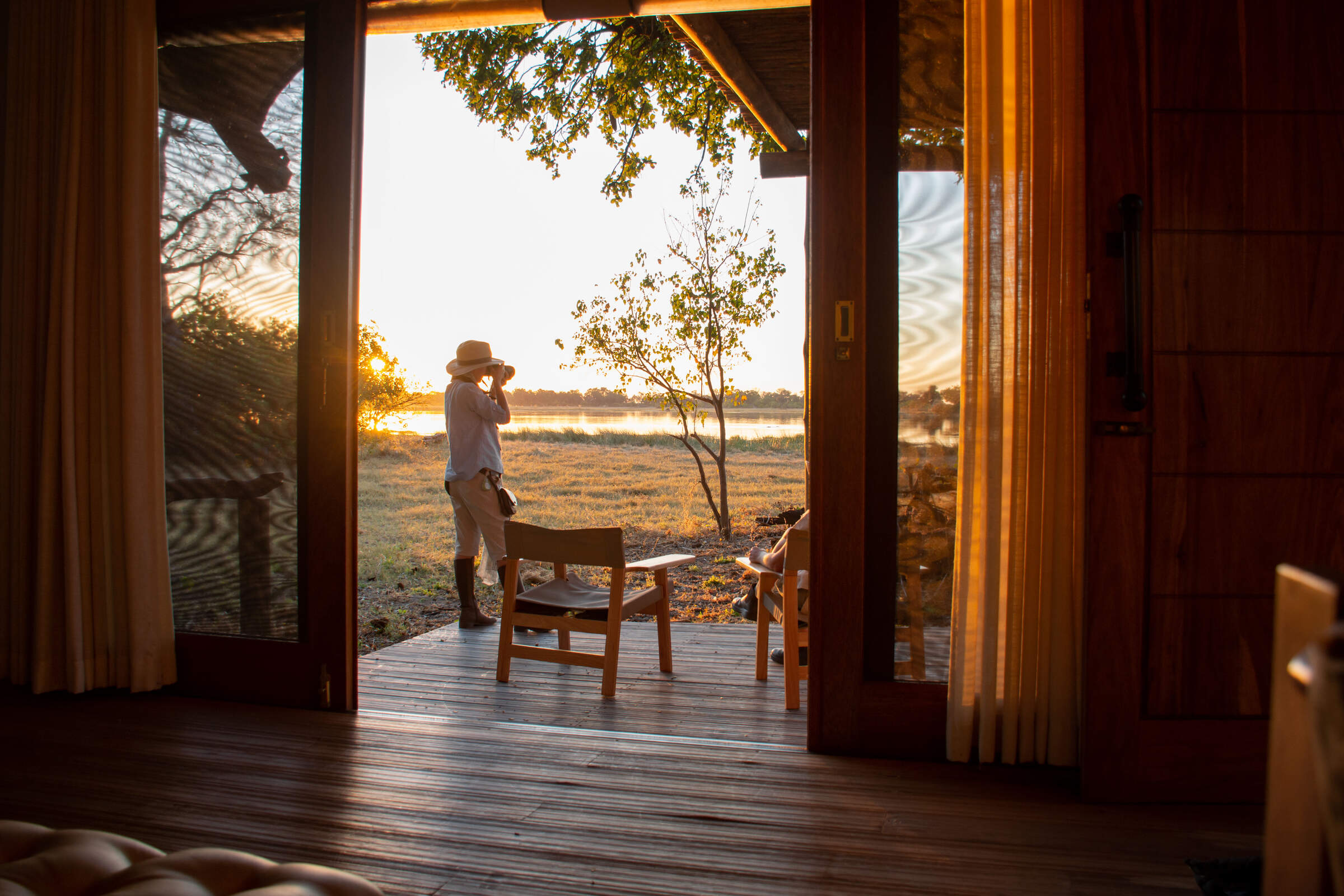
Kwara Camp
Kwara Camp's private reserve boasts land and water activities year-round, with excellent game-viewing opportunities and access to permanent channels of the north-east Okavango Delta.
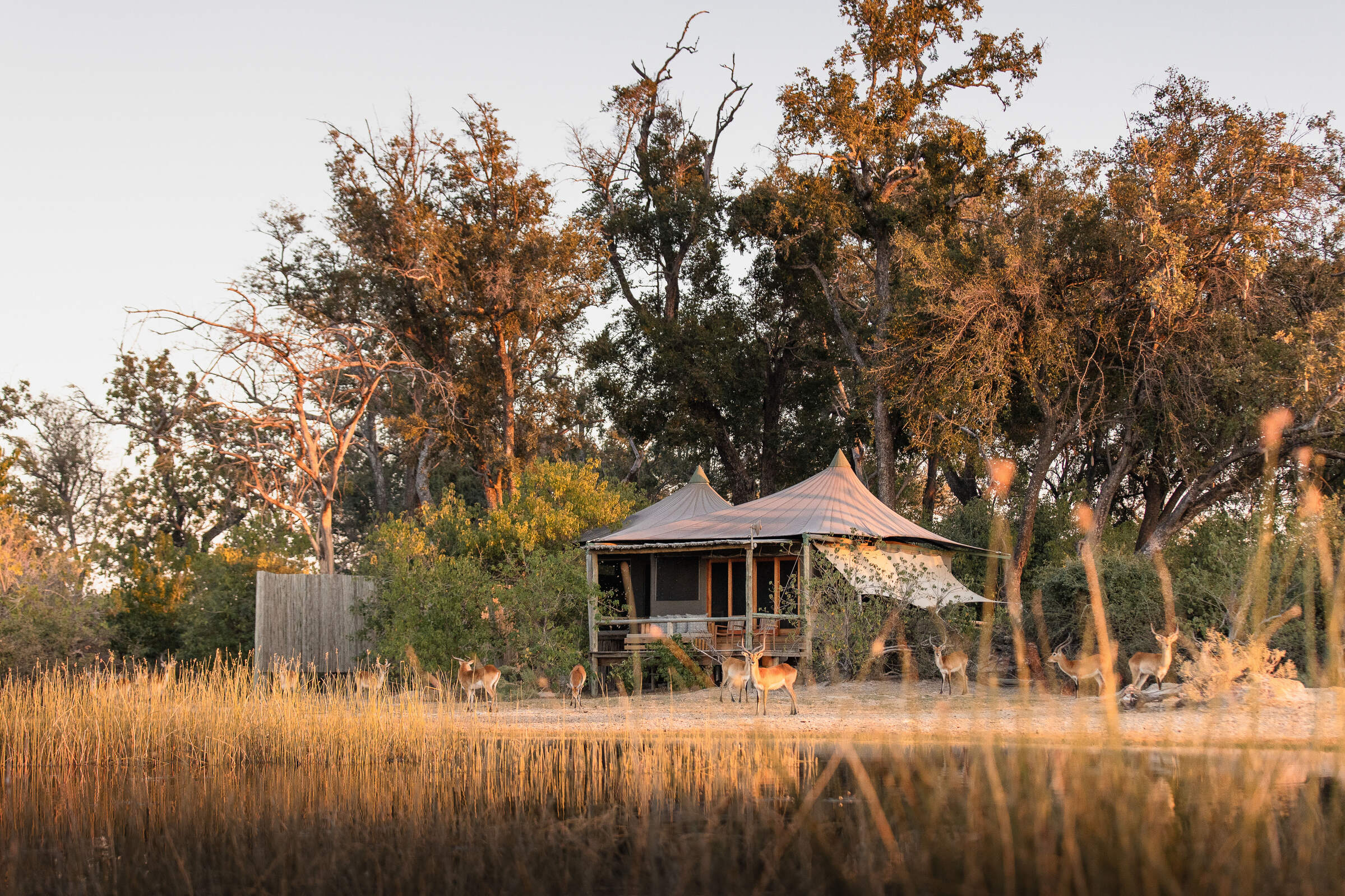
Little Vumbura
On a secluded island within a private reserve, Little Vumbura combines superb game viewing with a broad diversity of habitats in a truly picturesque setting.
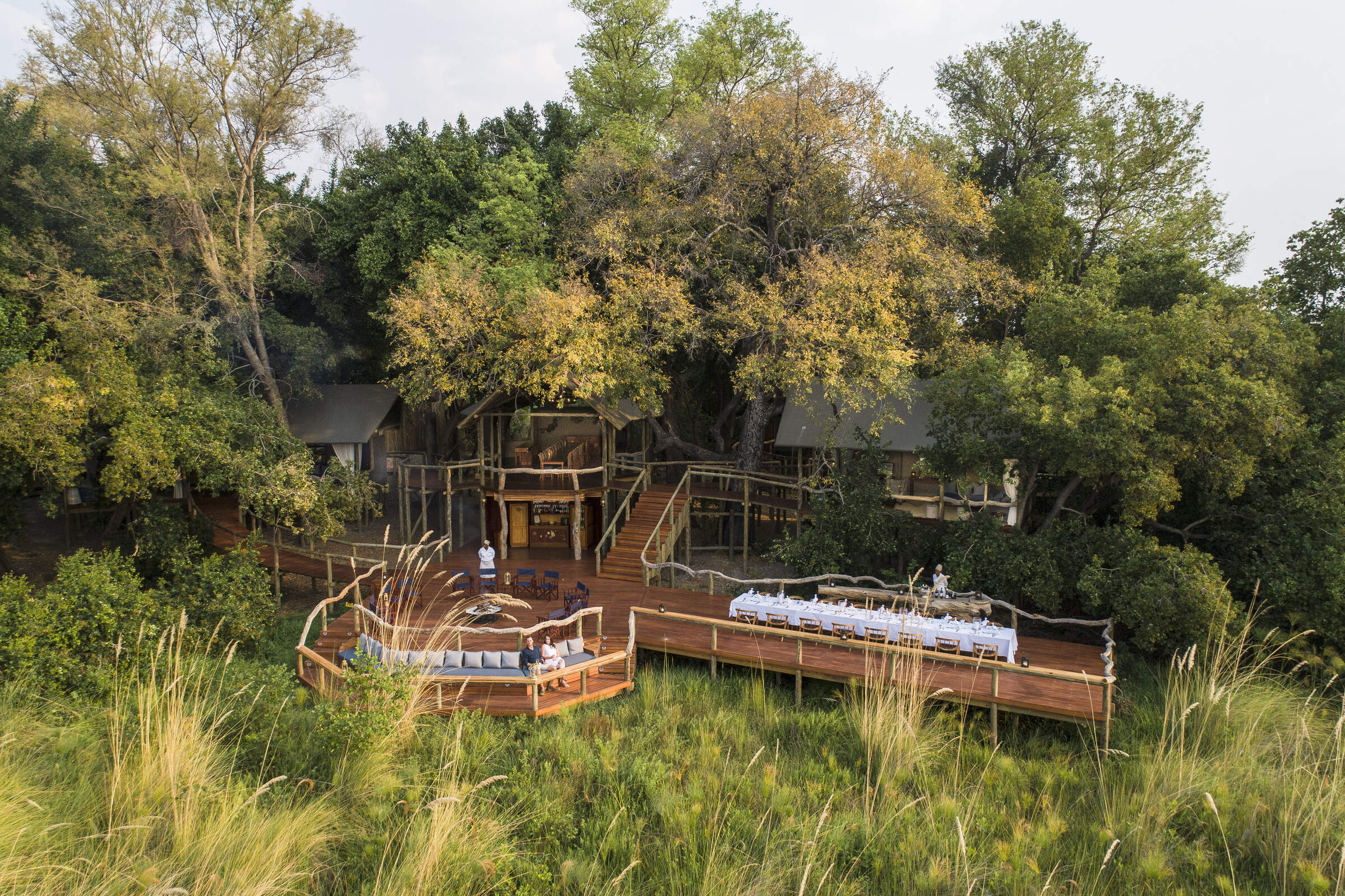
Shinde Camp
With experienced staff and a wealth of activities, Shinde offers a traditional safari in an exceptionally varied and wildlife-rich environment.
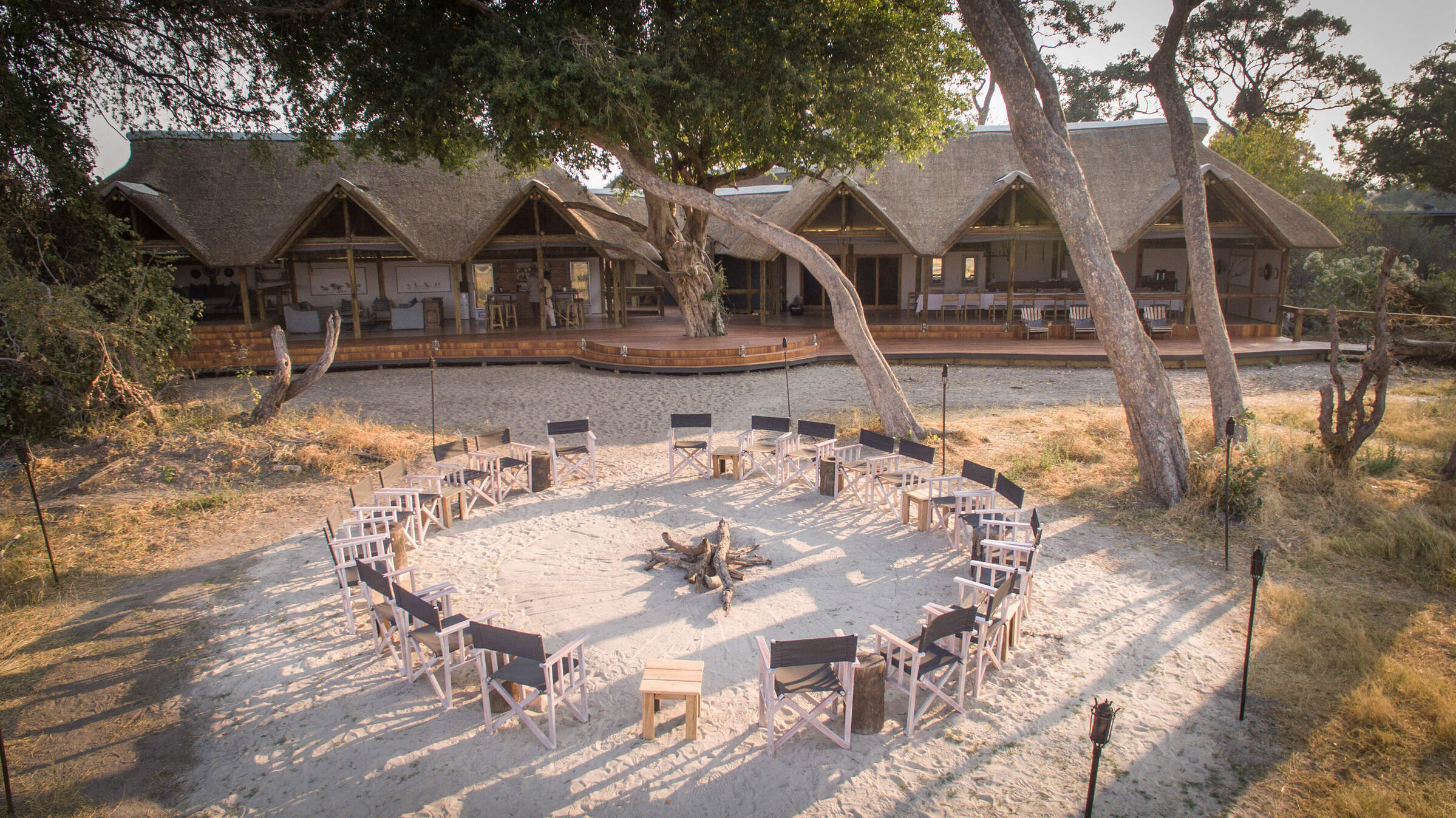
Splash Camp
Set in the Kwara Reserve, offering superb wildlife viewing year-round, Splash offers both land and water activities led by guides with a particular knack for tracking big game.
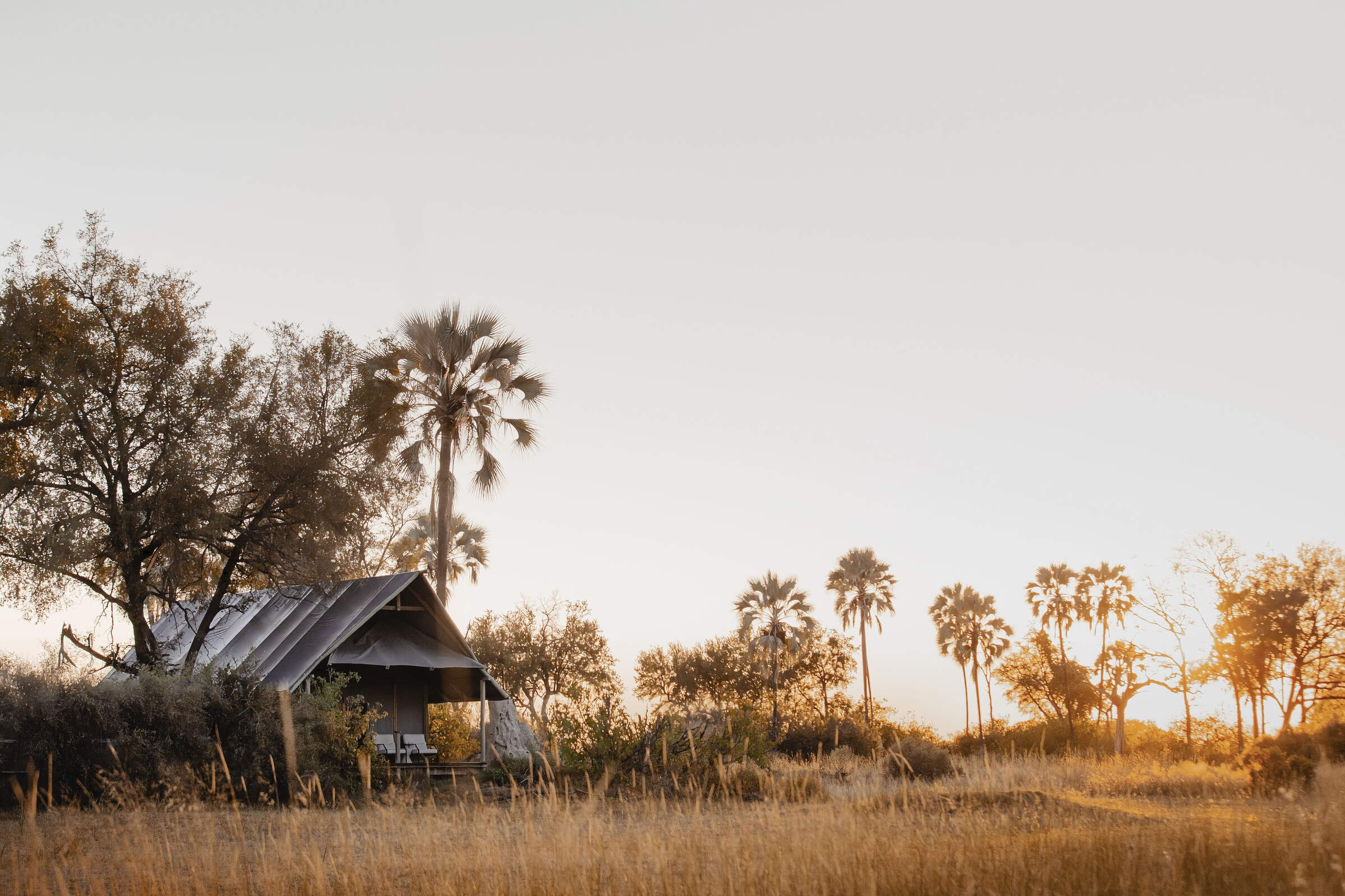
Chitabe Lediba
Chitabe Lediba, in Botswana's southern Okavango Delta, is a small family friendly safari camp; it offers great dry-land safaris and in our experience consistently delivers good game sightings.
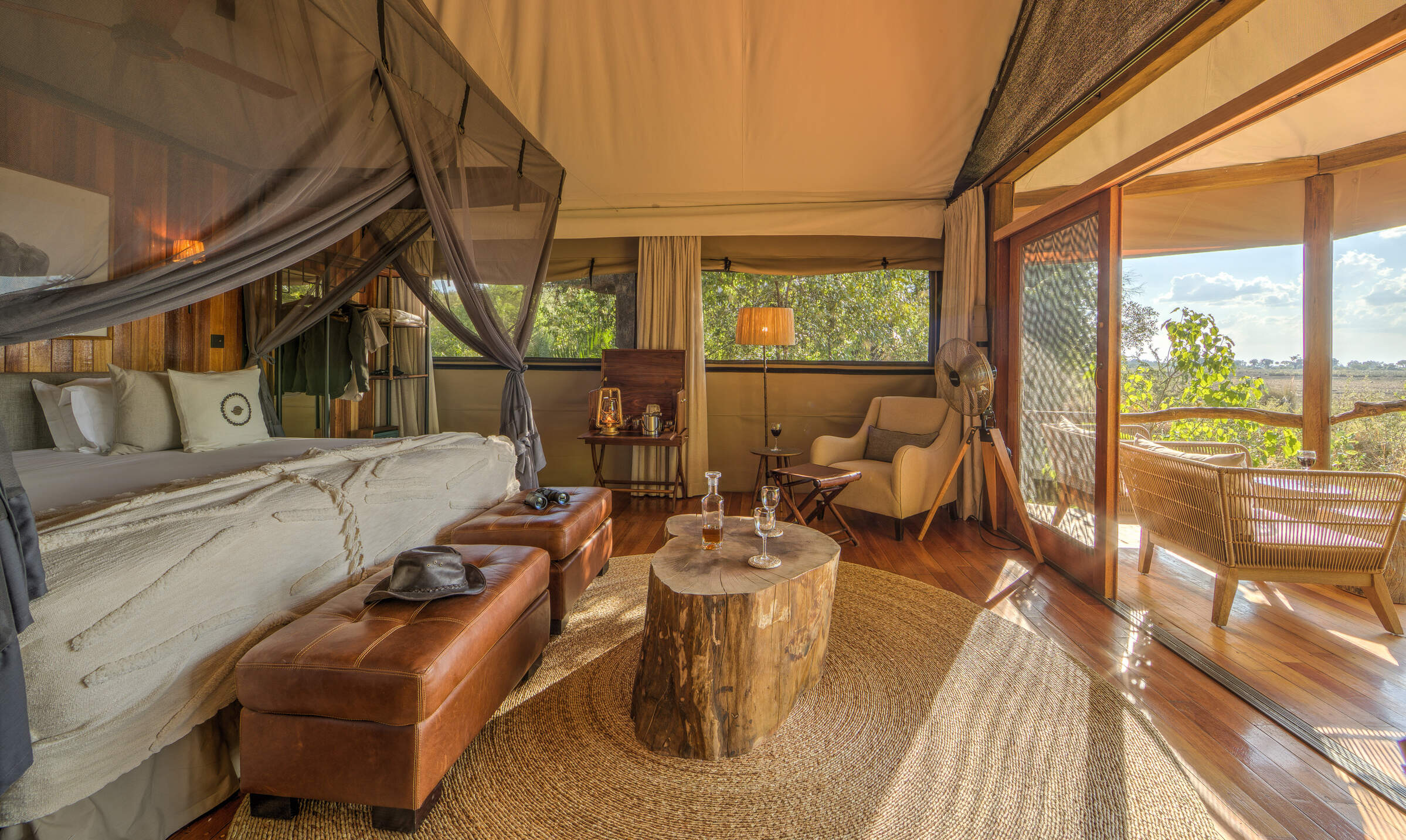
Kanana
In a beautiful part of the Delta, Kanana focuses on fantastic water activities and birding – including exclusive access to an impressive heronry.
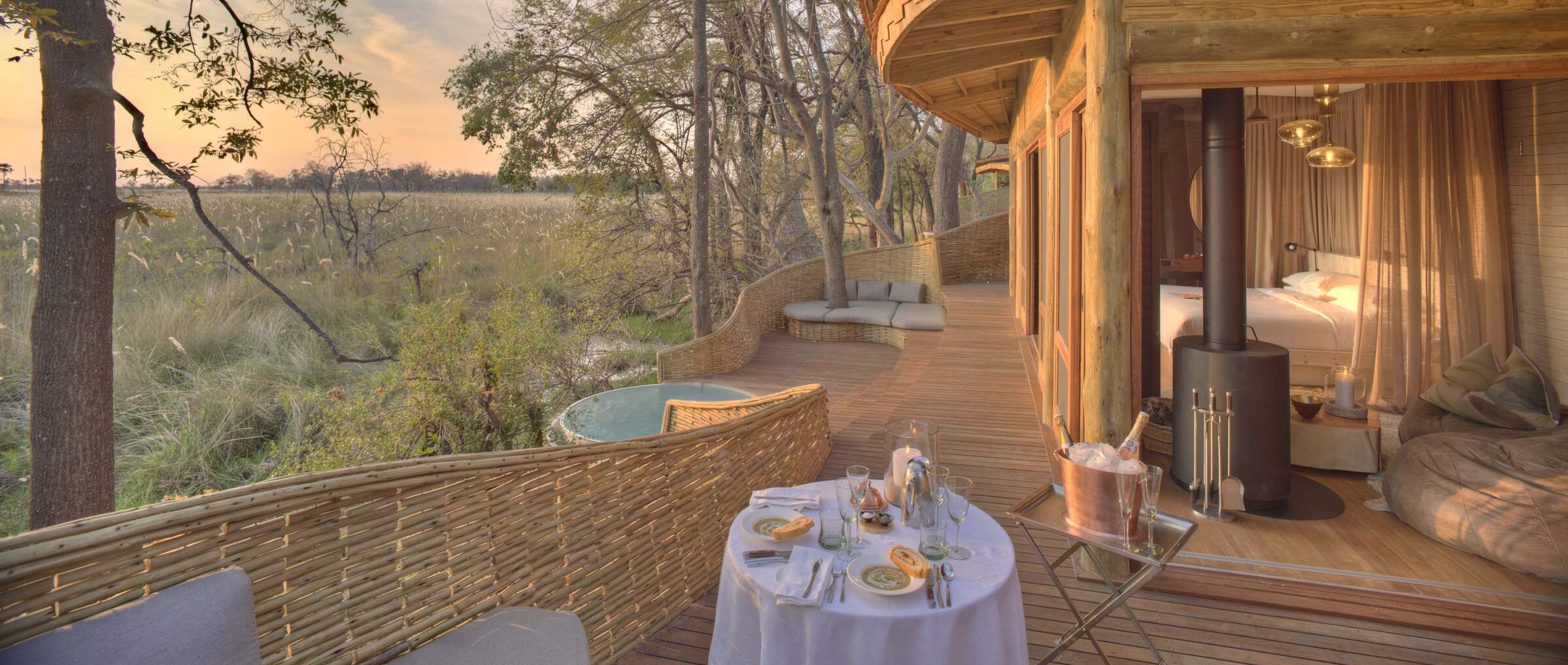
Sandibe Safari Lodge
The luxurious Sandibe Okavango Safari Lodge lies in a private concession in the heart of the Okavango Delta, beside Moremi Game Reserve, with superb big-game viewing.
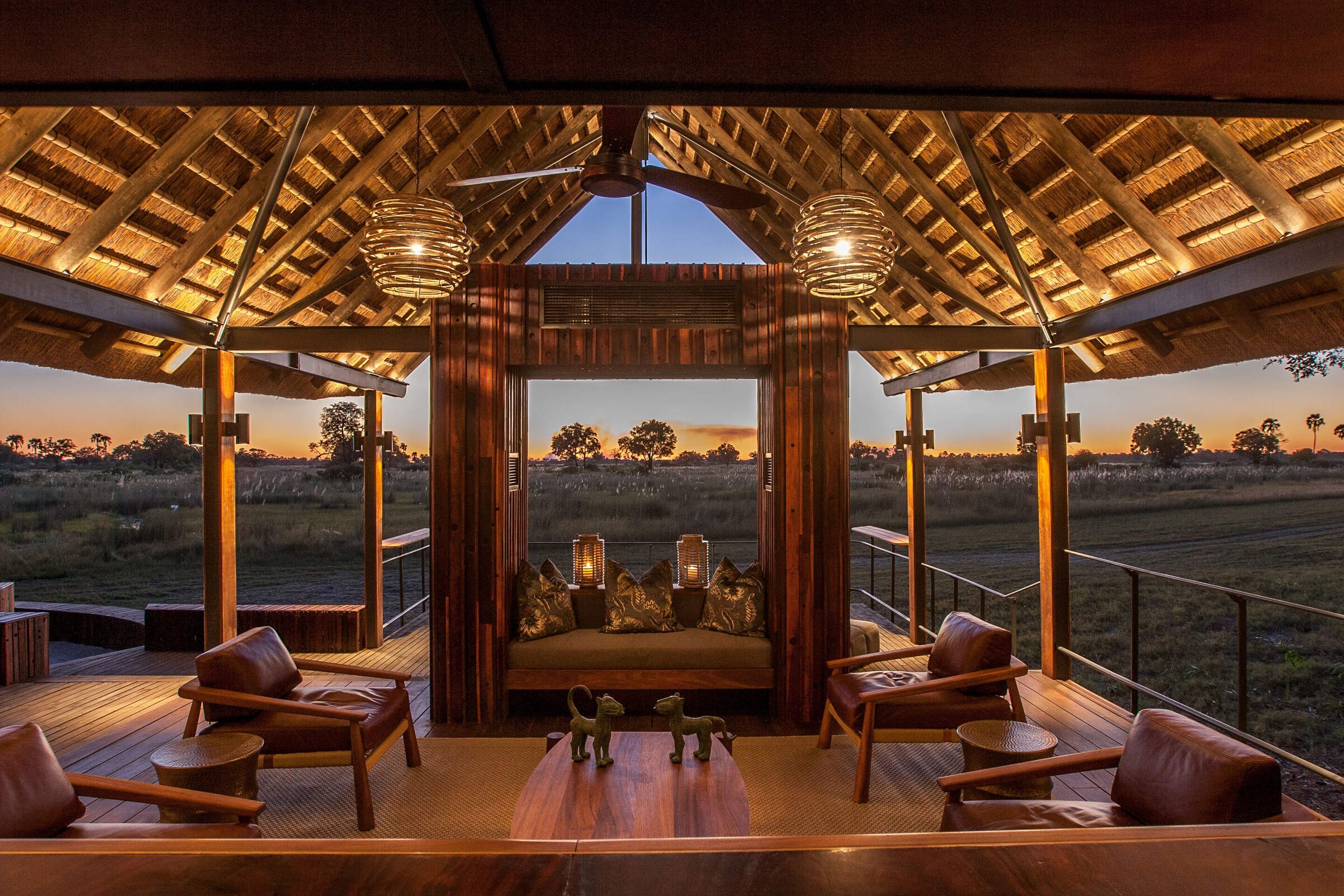
Chitabe Camp
In the southern Okavango Delta, the excellent Chitabe Camp concentrates on dry-land safaris in an area that we've found particularly good for wild dog sightings.
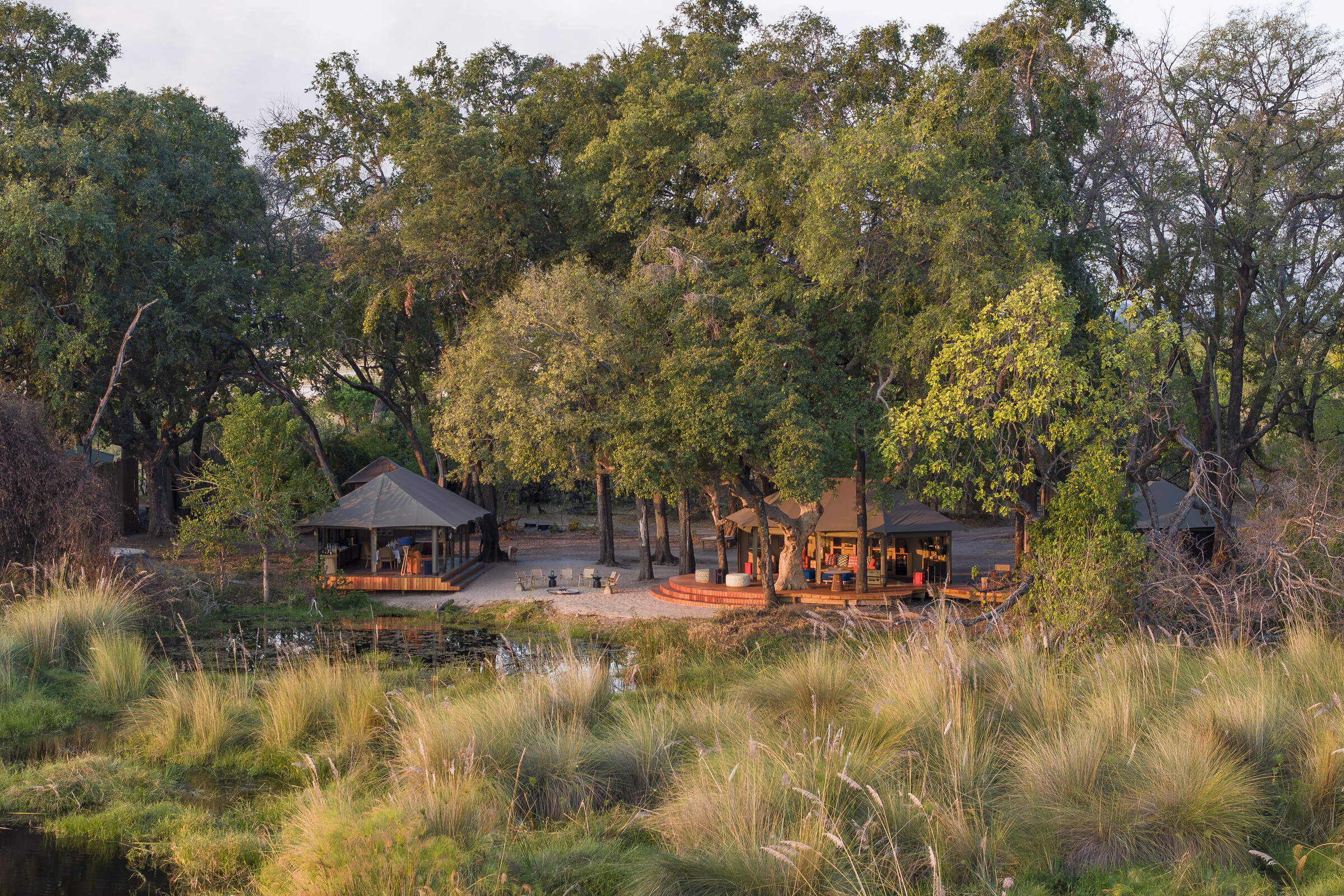
Shinde Footsteps
Small and simple, but comfortable, Shinde Footsteps focuses on walking safaris as well as game drives; it also runs a special children's programme so is particularly suitable for families.
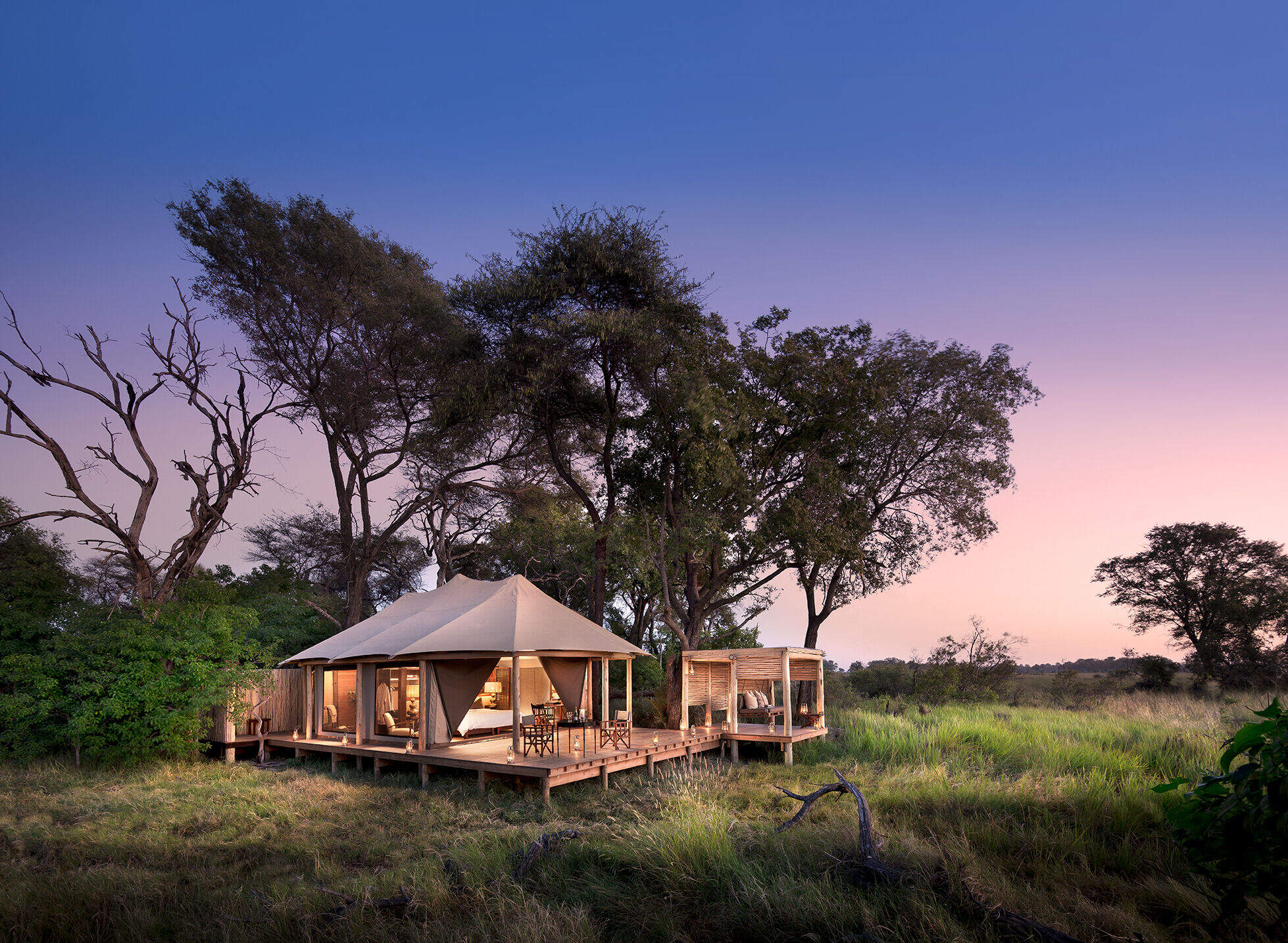
Nxabega Tented Camp
Nxabega offers a selection of both land- and water-based activities, plus very good guiding, food and service, but game viewing can be somewhat erratic.
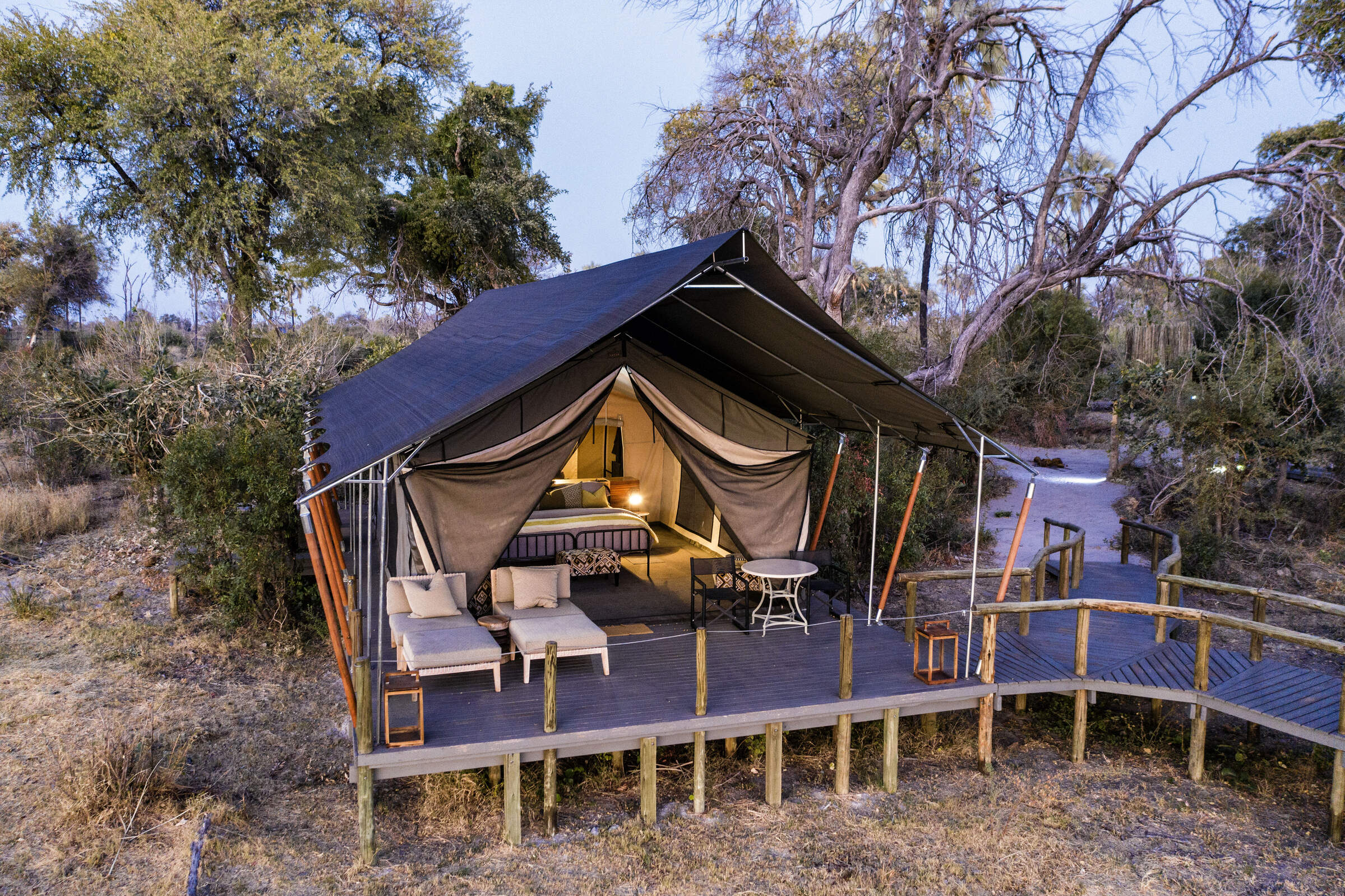
Gomoti Plains
Overlooking a tributary of the Gomoti River, Gomoti Plains Camp is a classically designed camp with very comfortable tents in a good game-viewing area.
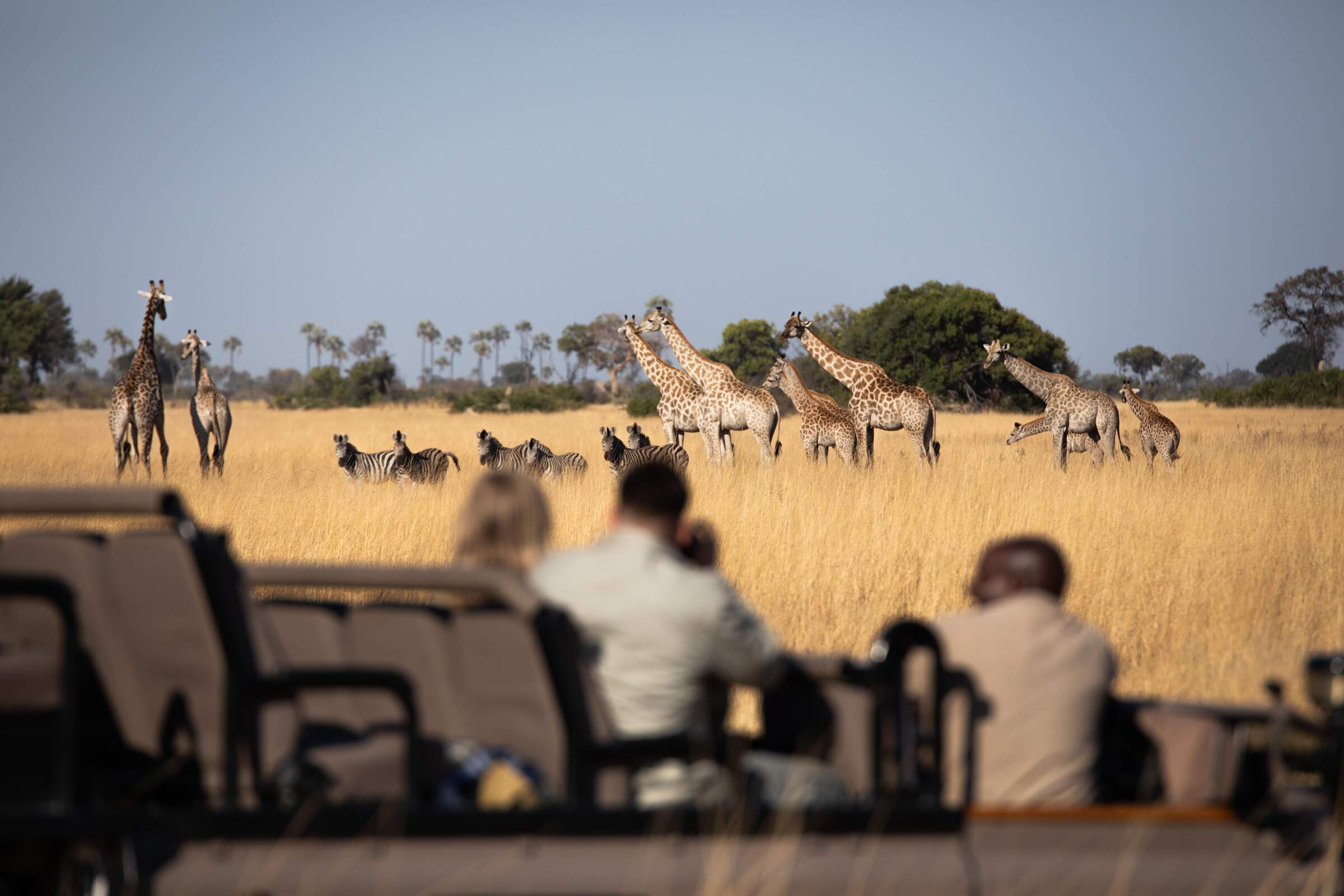
Tubu Tree Camp
A traditional tented camp with a distinctive tree-house feel, Tubu Tree offers some of the best game viewing in the Jao Reserve.
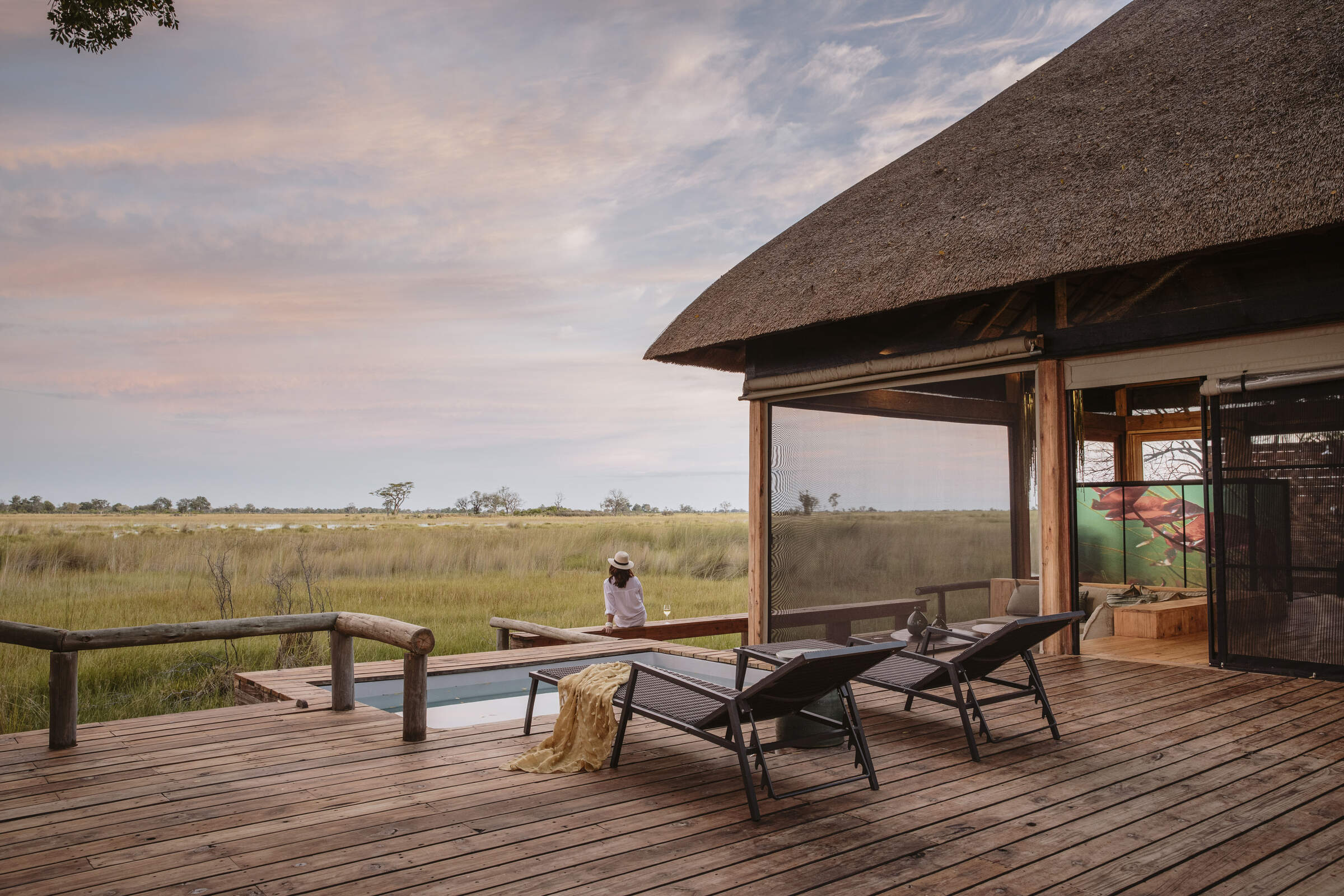
Vumbura Plains
Indulgently stylish and luxurious, Vumbura Plains offers superb game viewing and birding on an exceptionally varied private reserve.
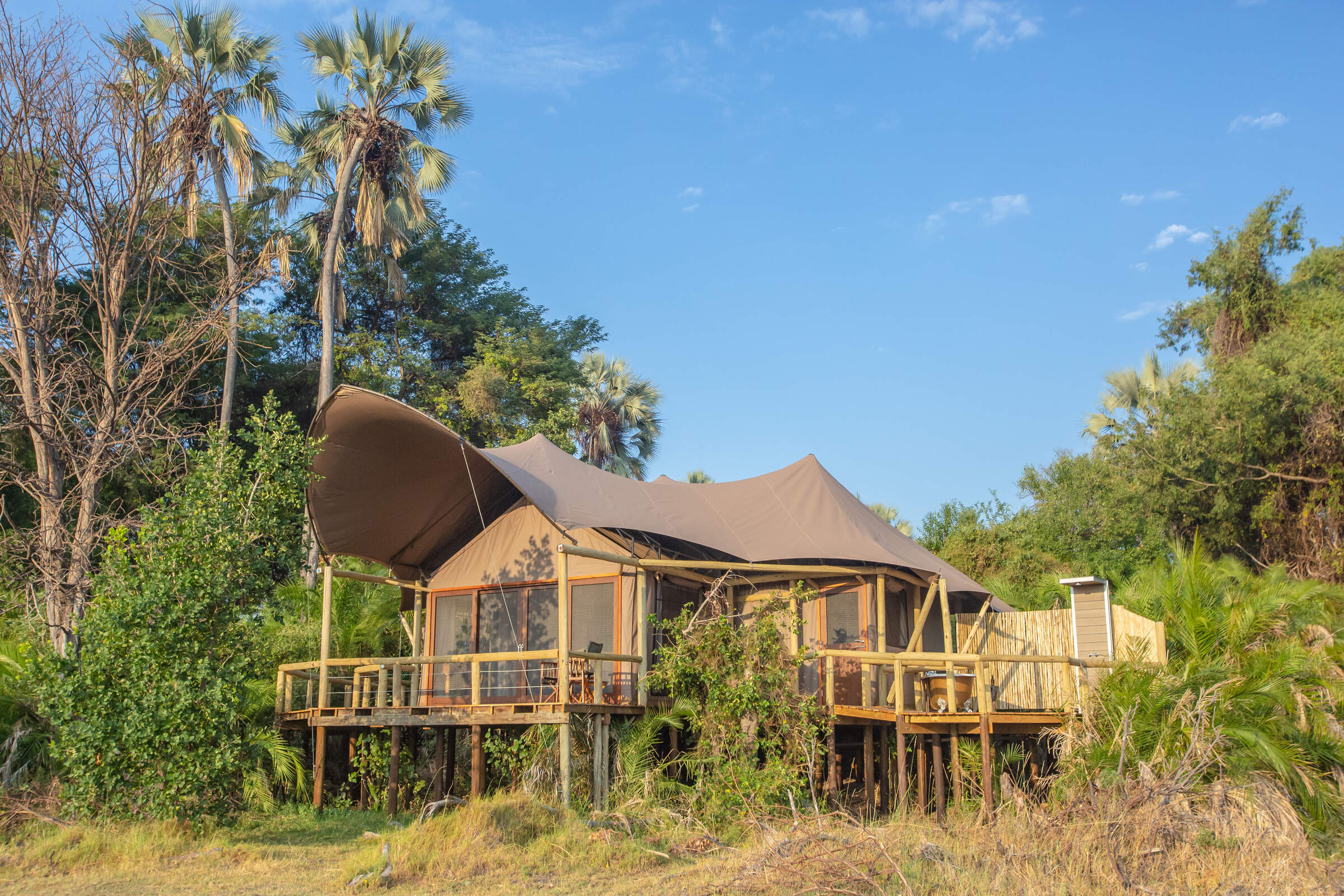
Jacana Camp
Jacana Camp is a small safari camp with an informal island feel; it is ideal for water-based activities in the Delta and offers excellent birdwatching.
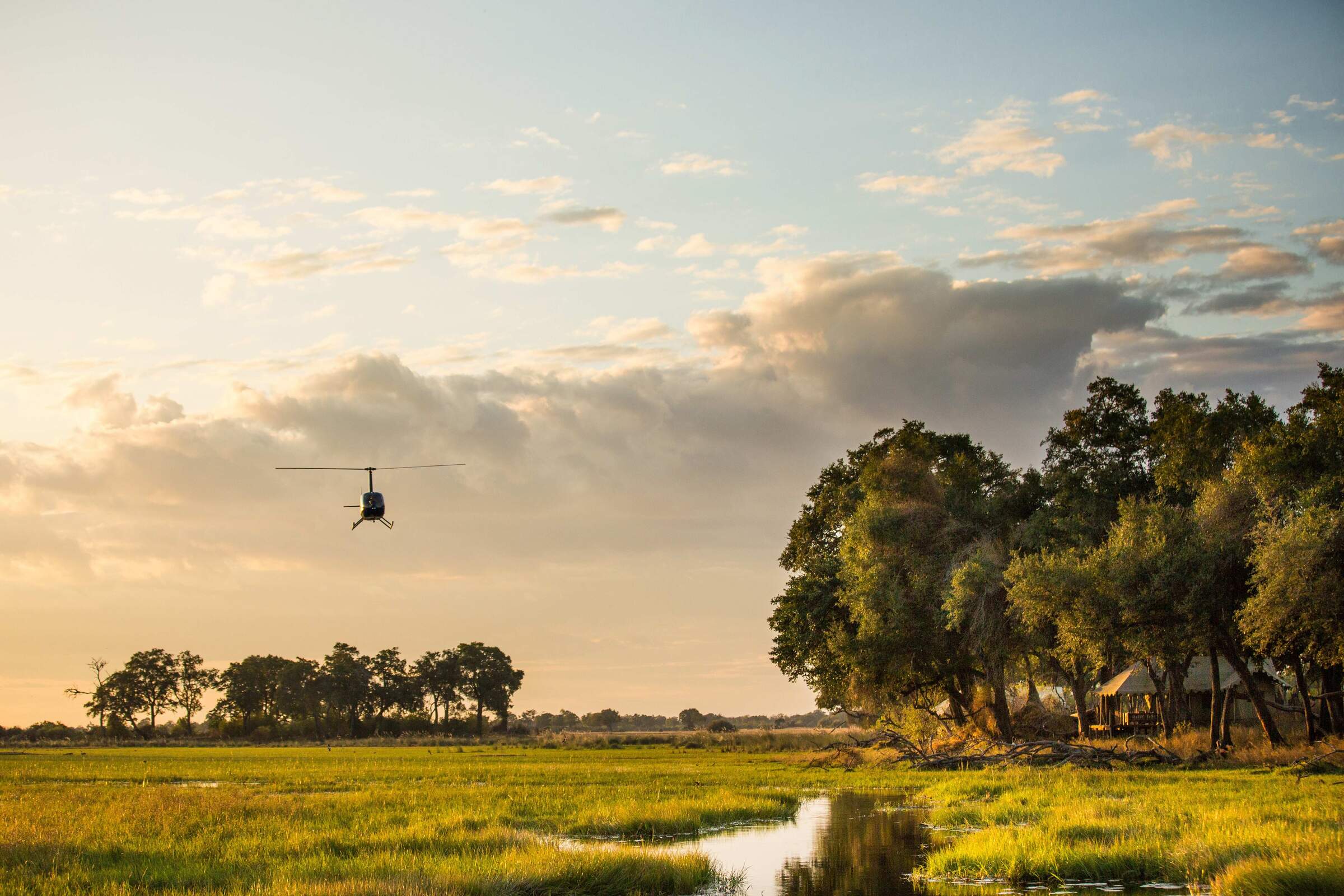
Duba Explorers Camp
Intimate and elegant, Duba Explorers Camp promises a firm safari focus in a remote corner of the Okavango, led by a team who value the highest guiding and hosting standards.
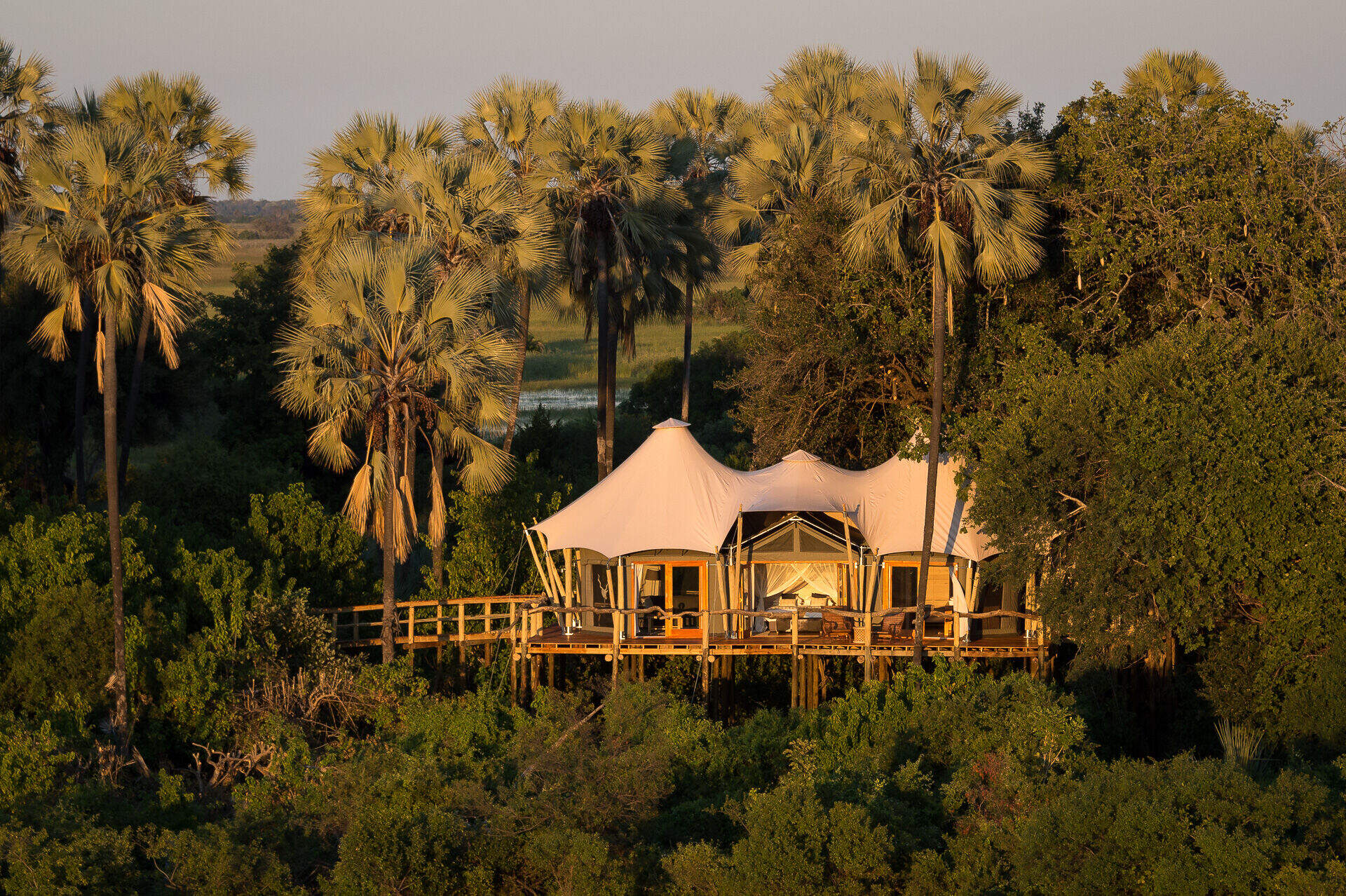
Kwetsani Camp
Deep in the Delta, overlooking a floodplain, Kwetsani Camp is a small, high-end camp with good access to areas for land and water-based activities.
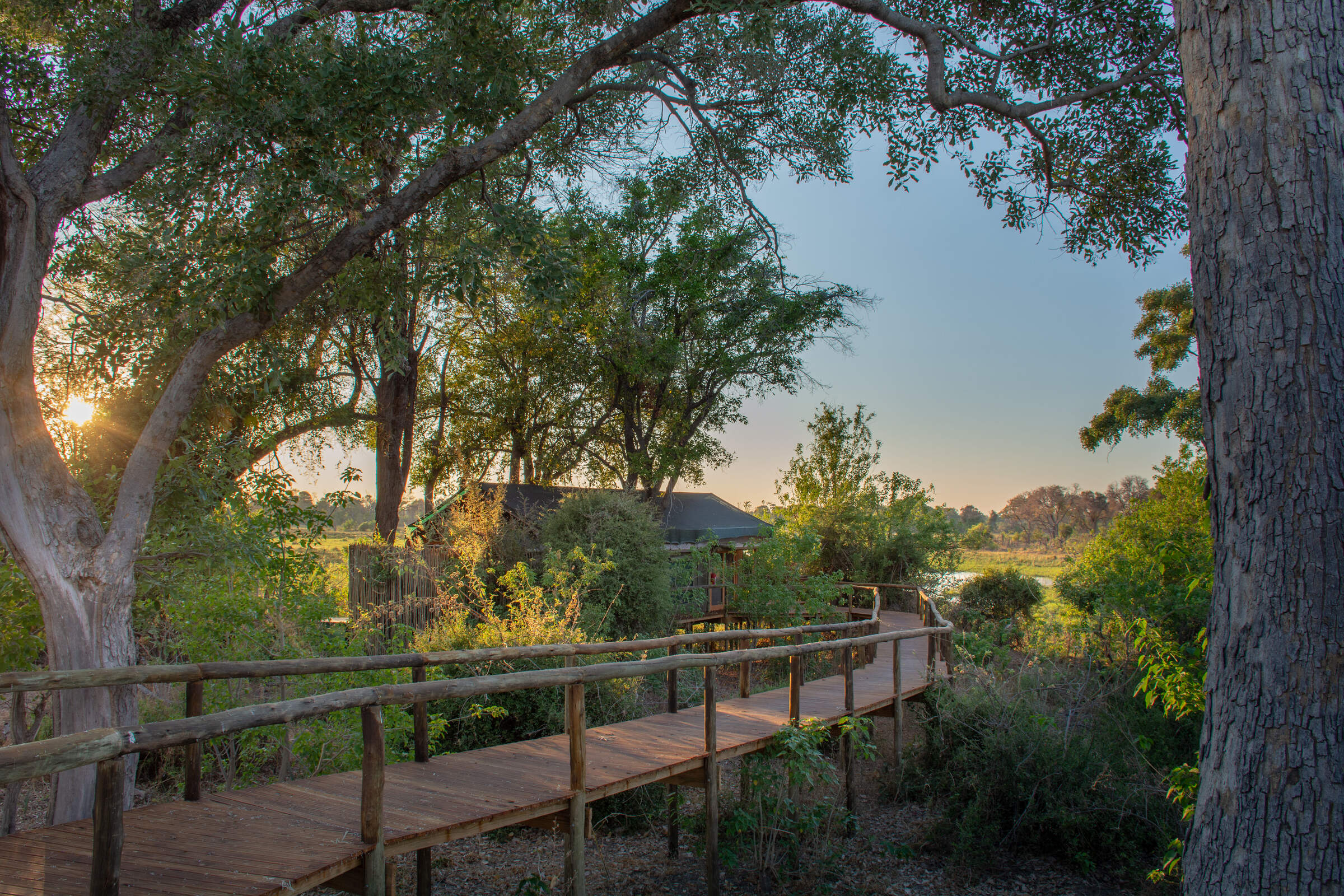
Mma Dinare
Beautifully located in a private concession overlooking the Gomoti River, the traditional Mma Dinare is very well-priced for the Okavango Delta.
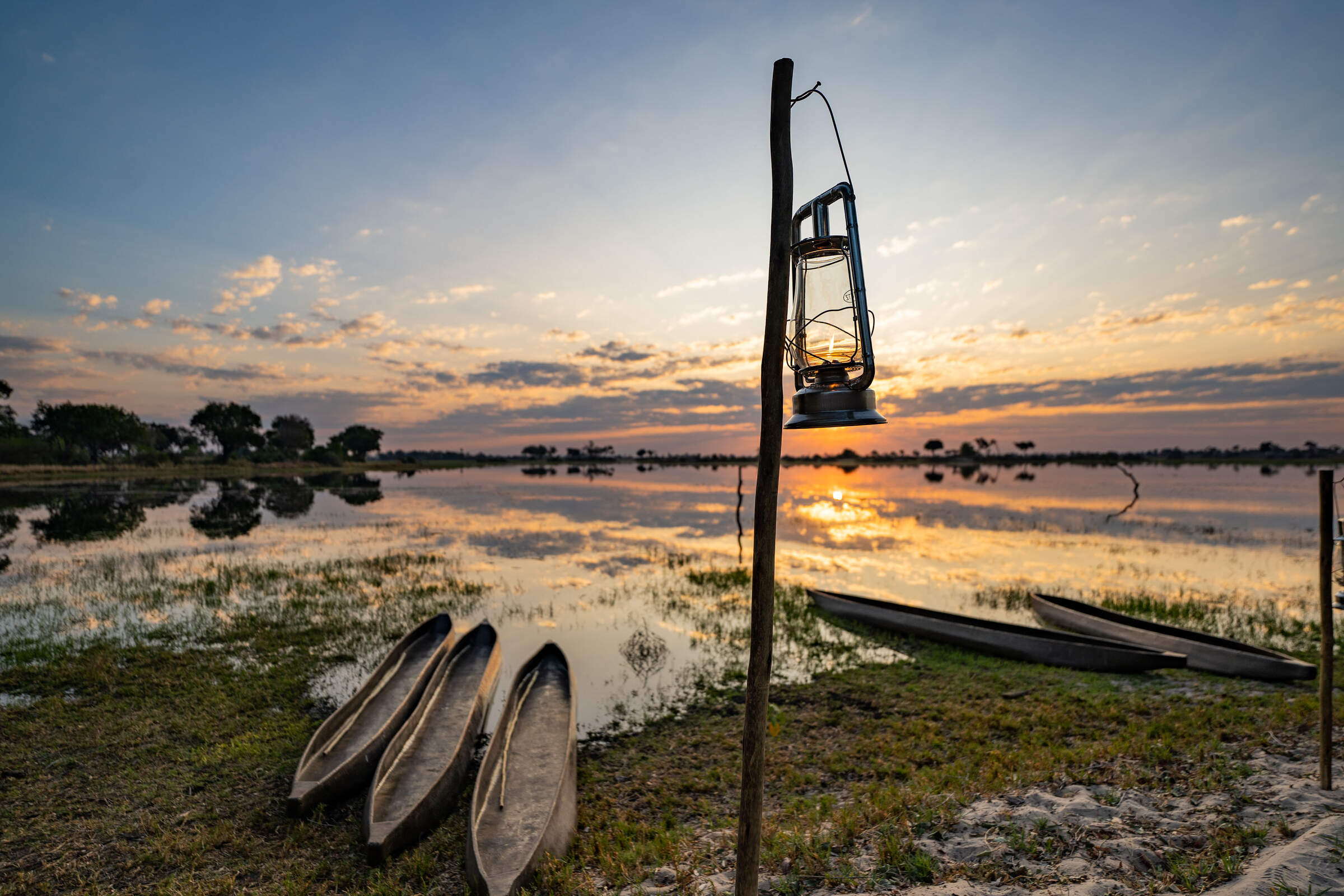
Pom Pom Camp
Amidst stunning Okavango Delta scenery, Pom Pom offers idyllic mokoro trips in season, great birdwatching, and increasingly good big-game sightings, especially leopards.
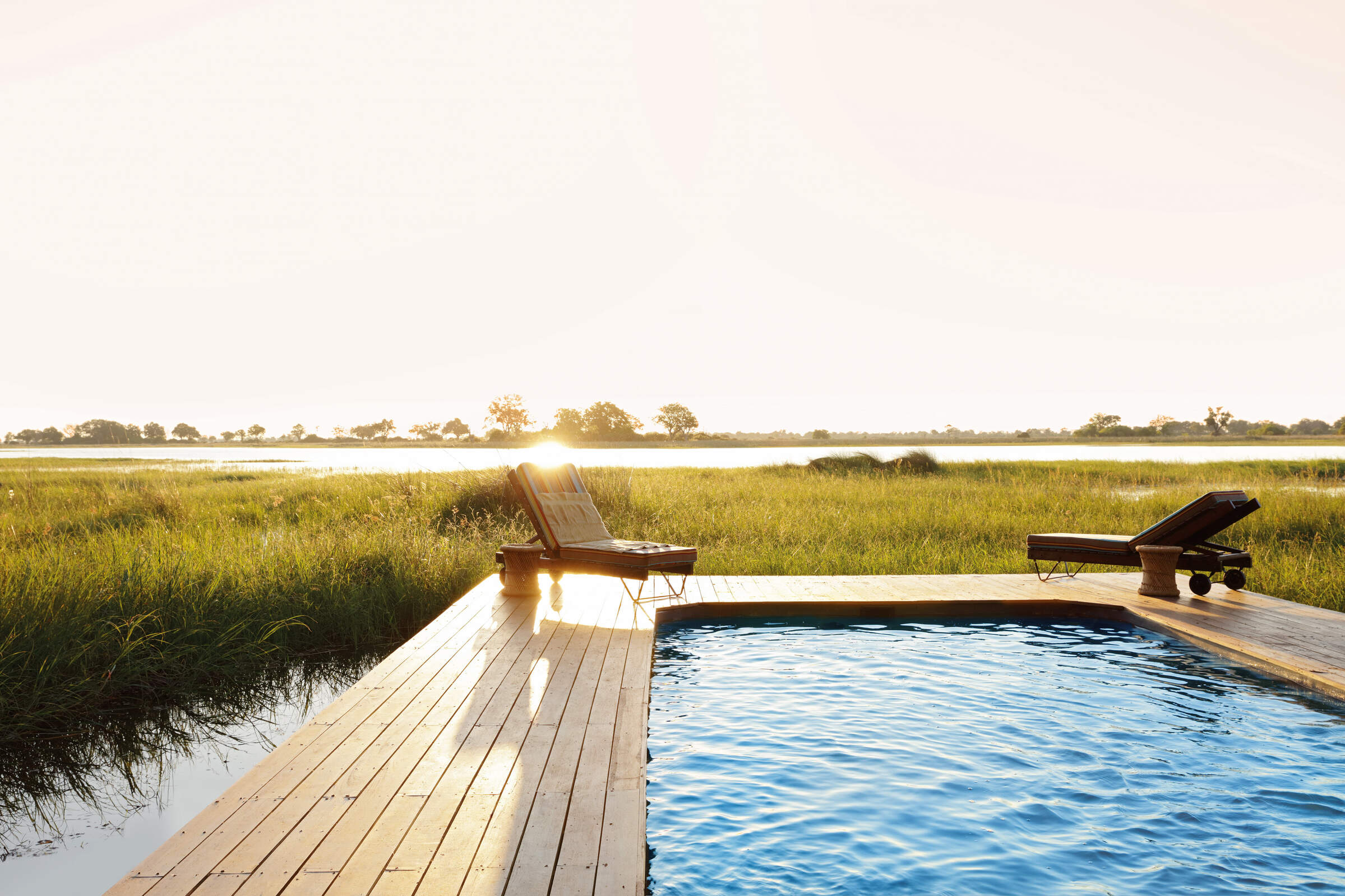
Mapula Lodge
For an affordable yet varied safari encompassing a range of eco-systems, the traditional Mapula Lodge takes a lot of beating.
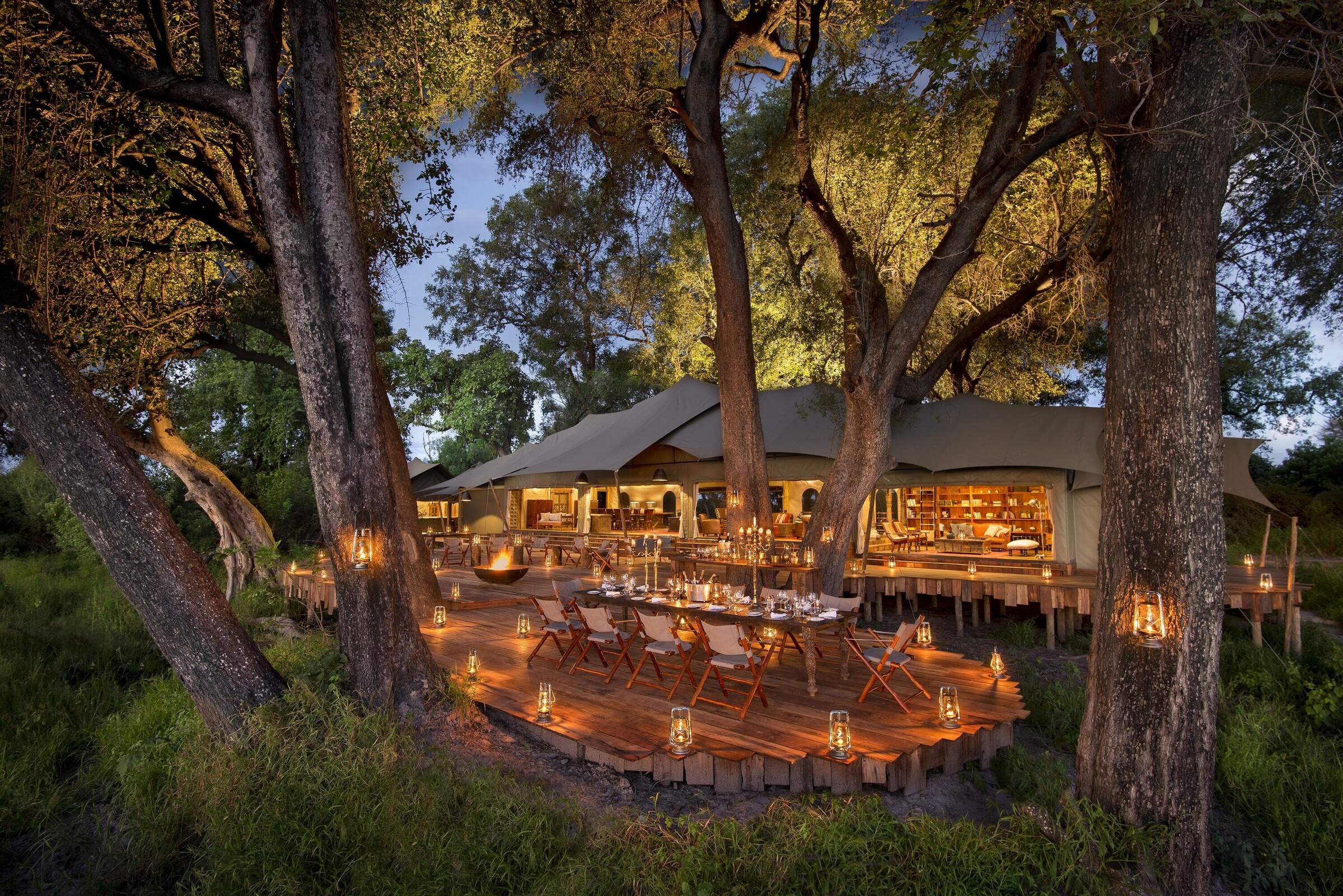
Duba Plains Camp
Duba Plains Camp is a traditional yet luxurious safari camp, best known for the thrilling lion behavior interaction that is often see during the day.
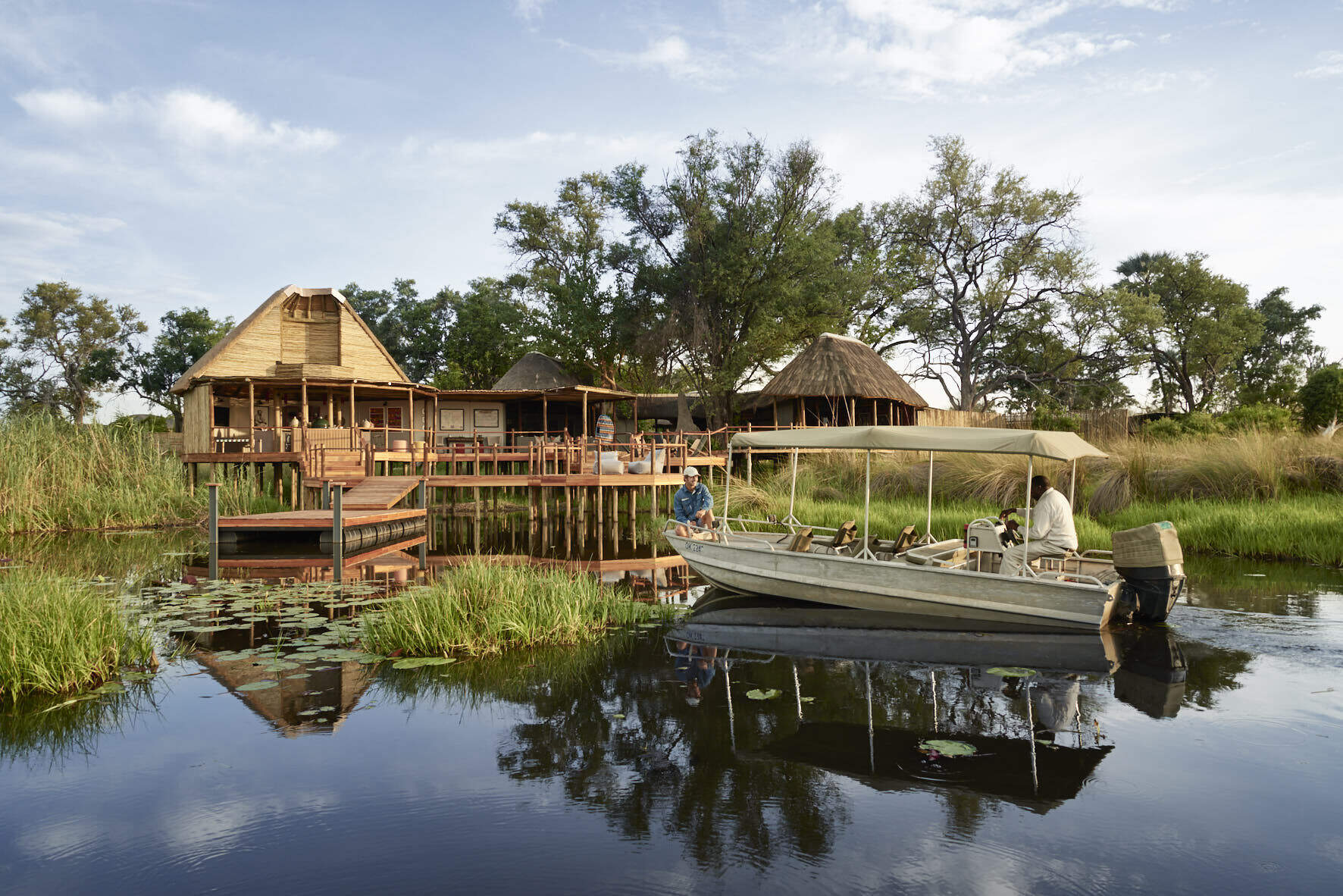
Baines' Camp
Baines' Camp is a well-run, intimate camp in a pretty part of the Okavango, offering a range of activities and the option to spend a morning walking with elephants.
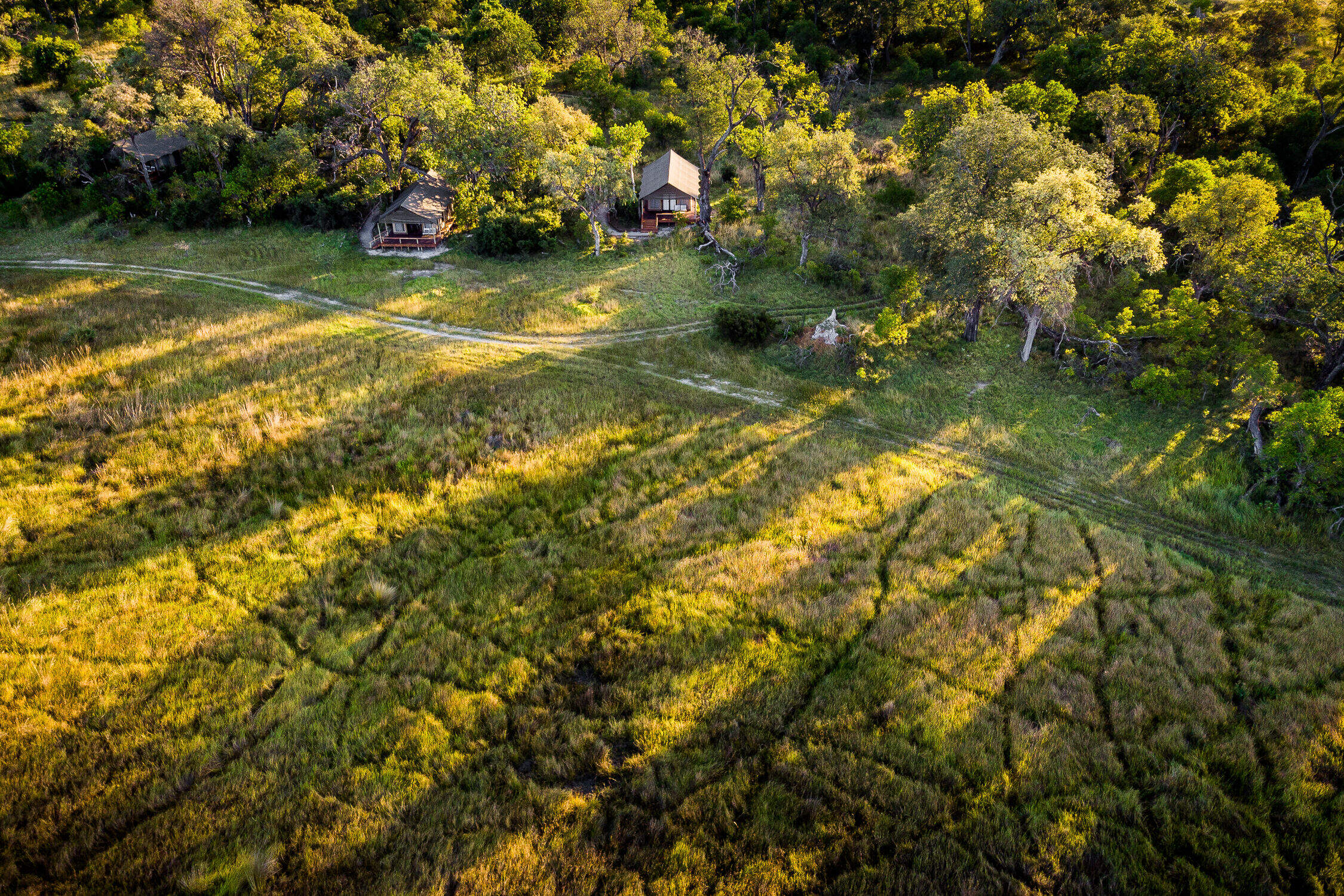
Stanley's Camp
In a private concession south of Moremi Game Reserve, Stanley's Camp offers 4WD game drives, seasonal water activities and a superb elephant interaction.
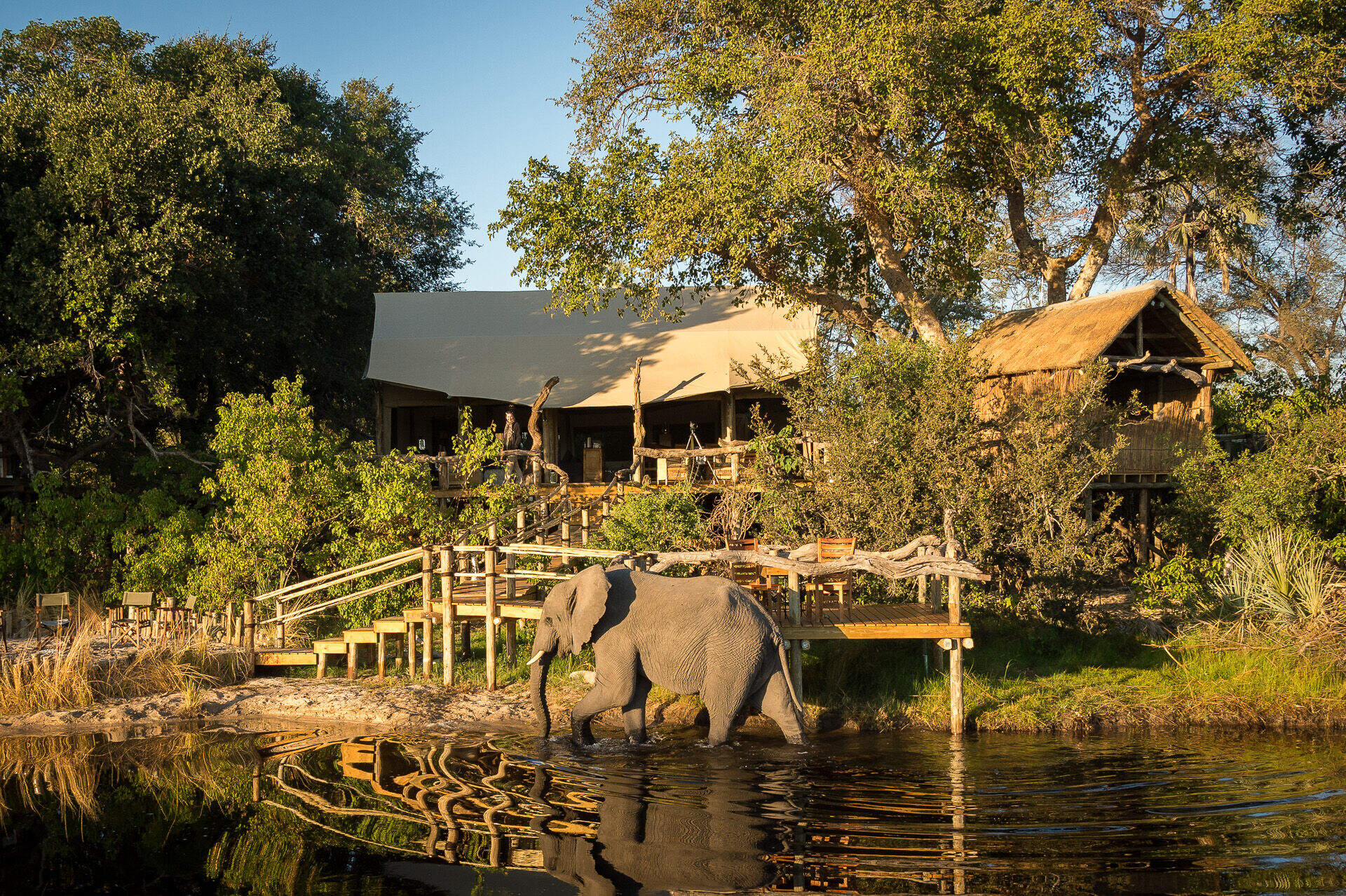
Little Tubu
Little Tubu is a new, traditional camp with just three tented chalets and a distinctive tree-house feel. The areas around it can be explored by water and land-based activities year round.
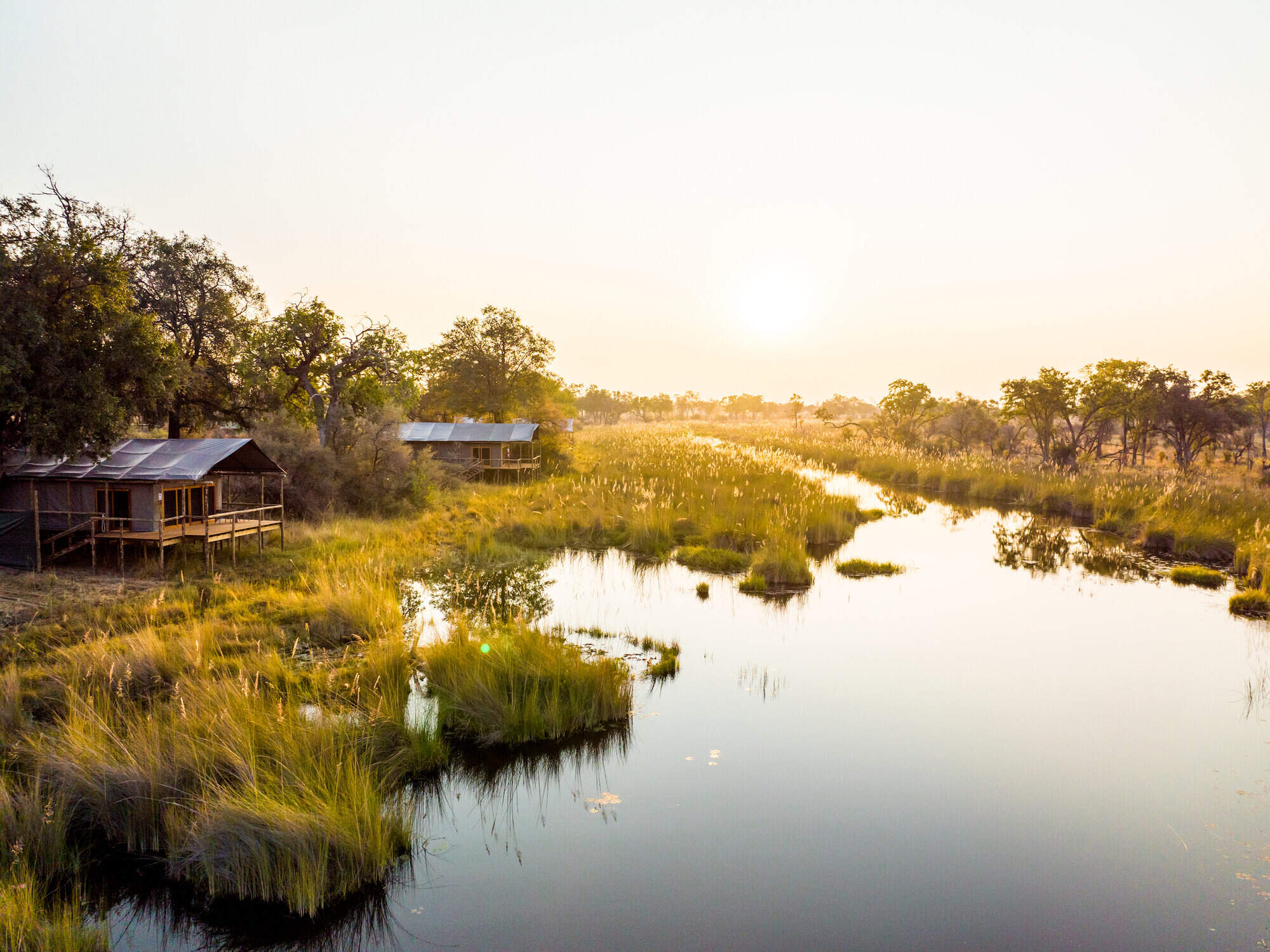
4 Rivers
4 Rivers is a new camp in a previously in accessible area of the excellent Kwara concession.
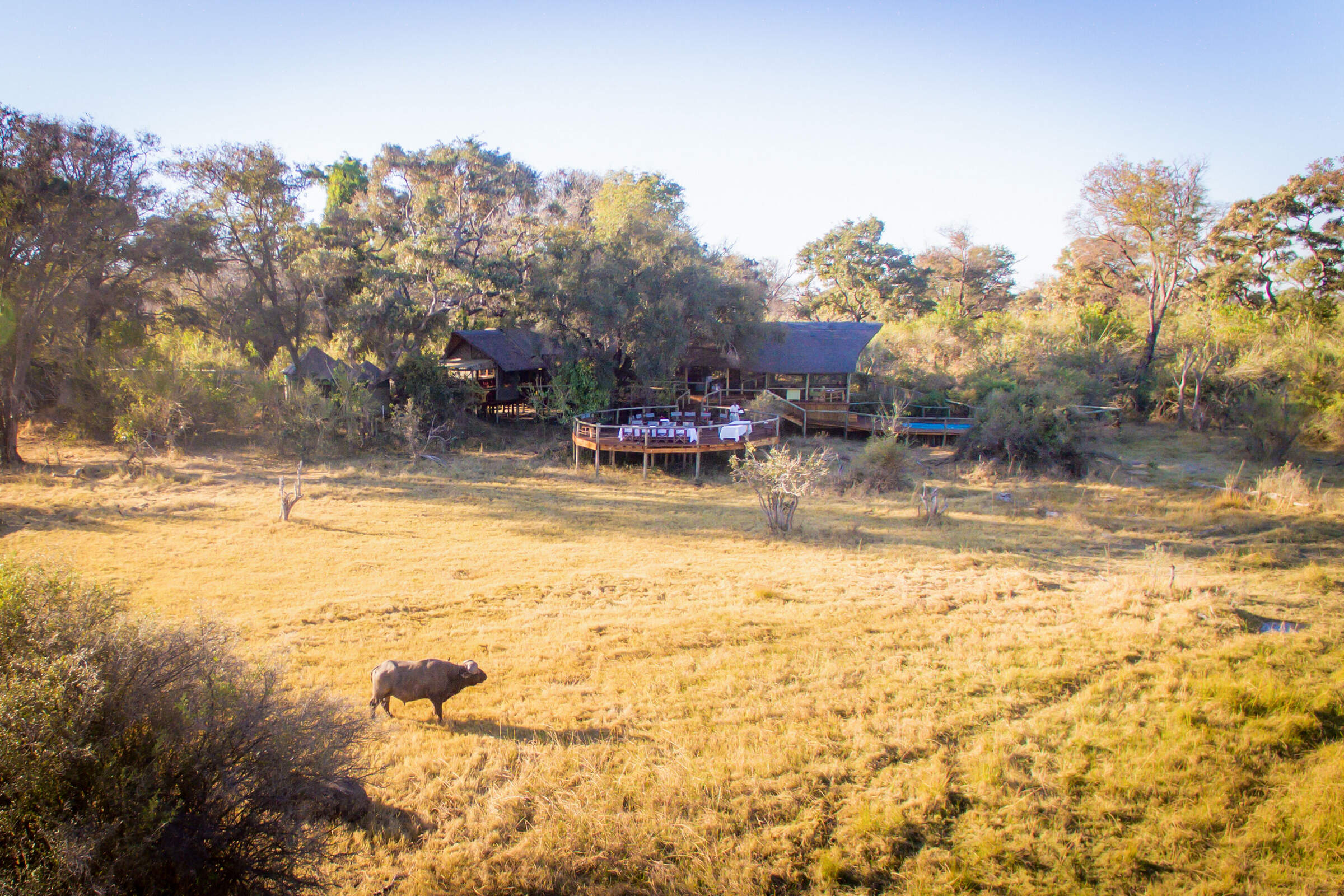
Rra Dinare
Located in a private concession in the southern reaches of the Okavango Delta, overlooking the Gomoti River, Rra Dinare is a traditional-style, well-priced camp.
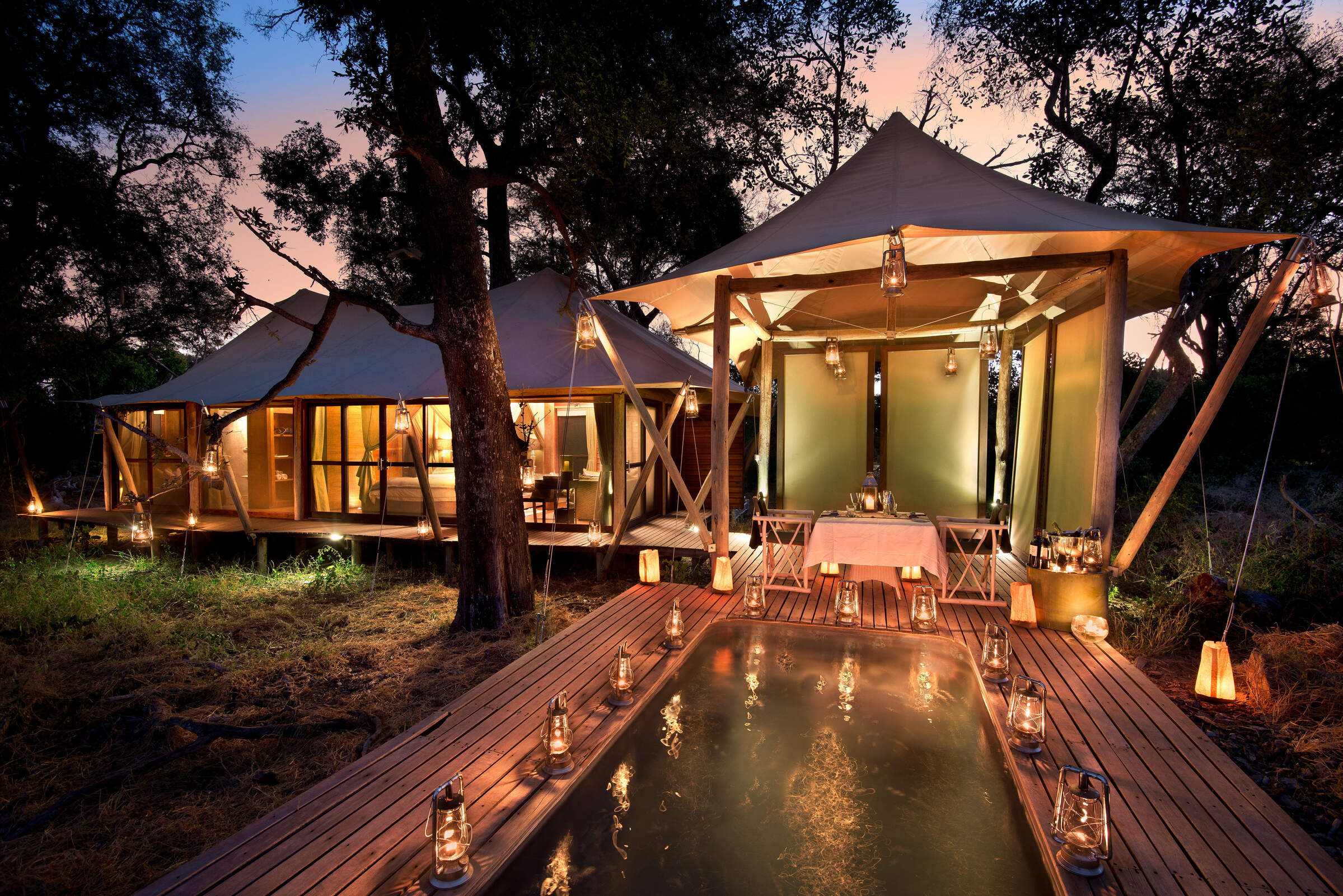
Xaranna
Xaranna is a plush tented camp amongst the idyllic waterways and islands of the Delta. Each air-conditioned tent has a plunge pool. Water activities and pampering are the focus here.
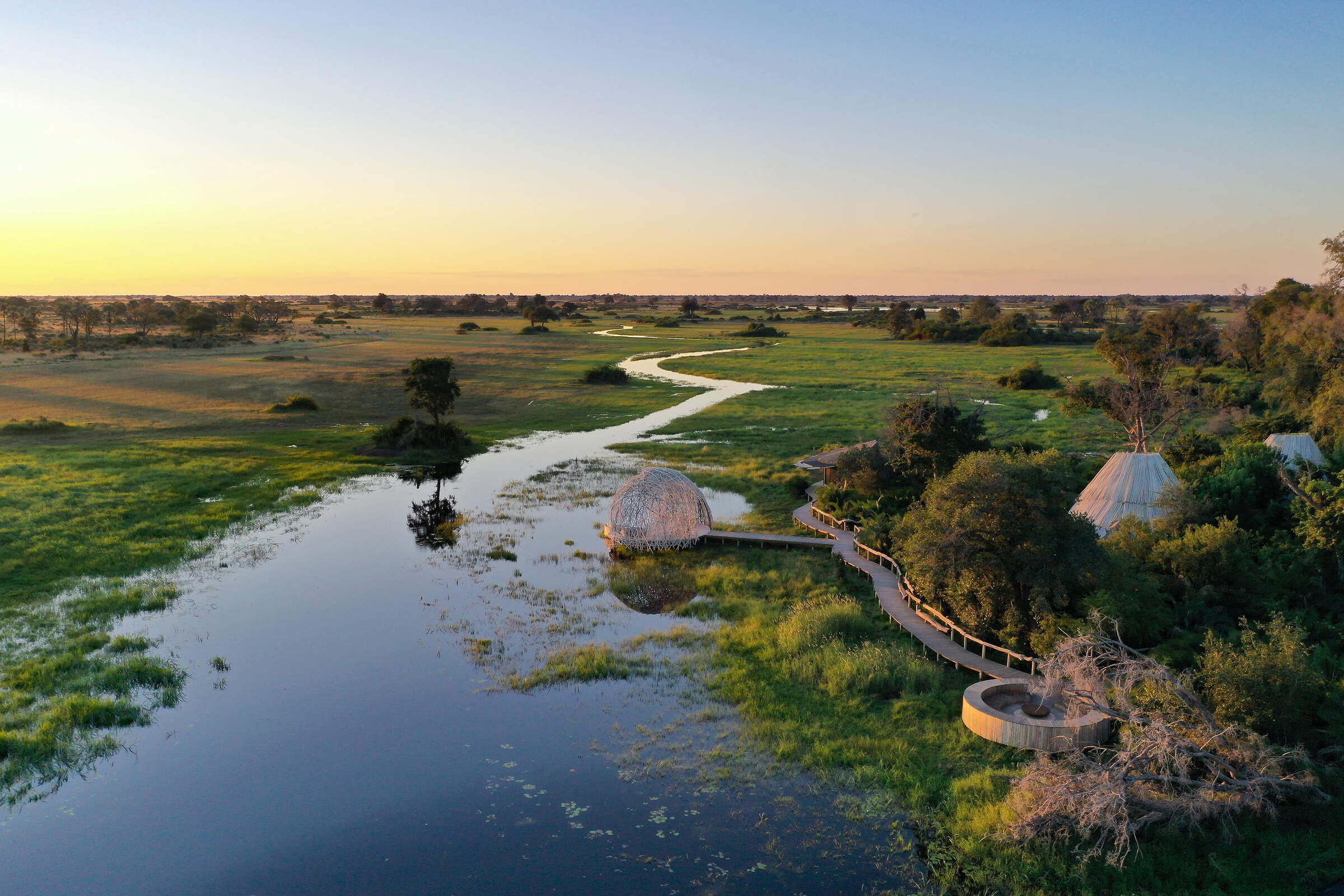
Jao Camp
In a beautiful area with fantastic water activities, Jao combines an idyllic location with high levels of luxury and service, and a top-end spa.
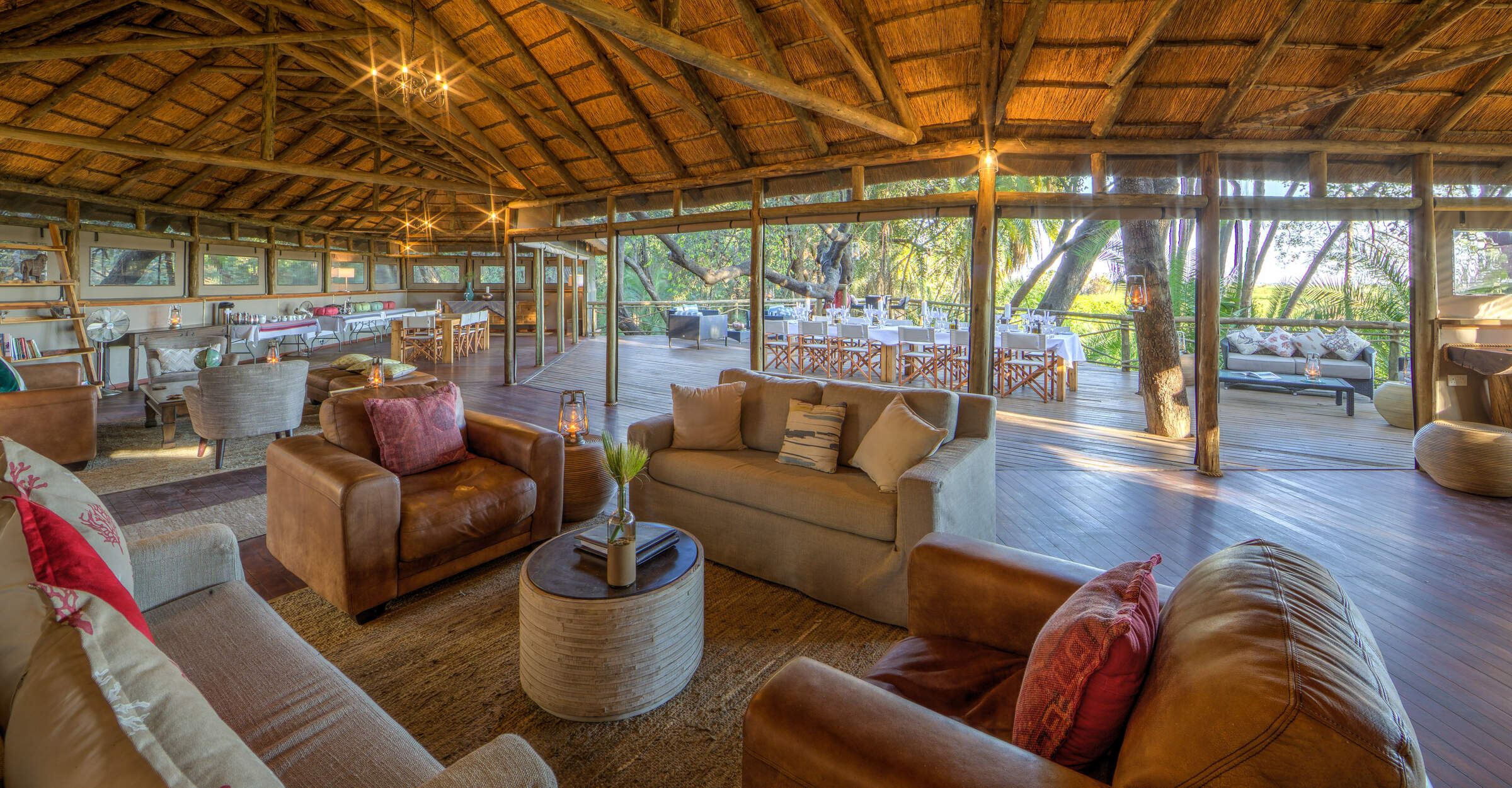
Setari Camp
Setari Camp stands on an island dotted with palm trees, close to the base of the Okavango’s ‘Panhandle"
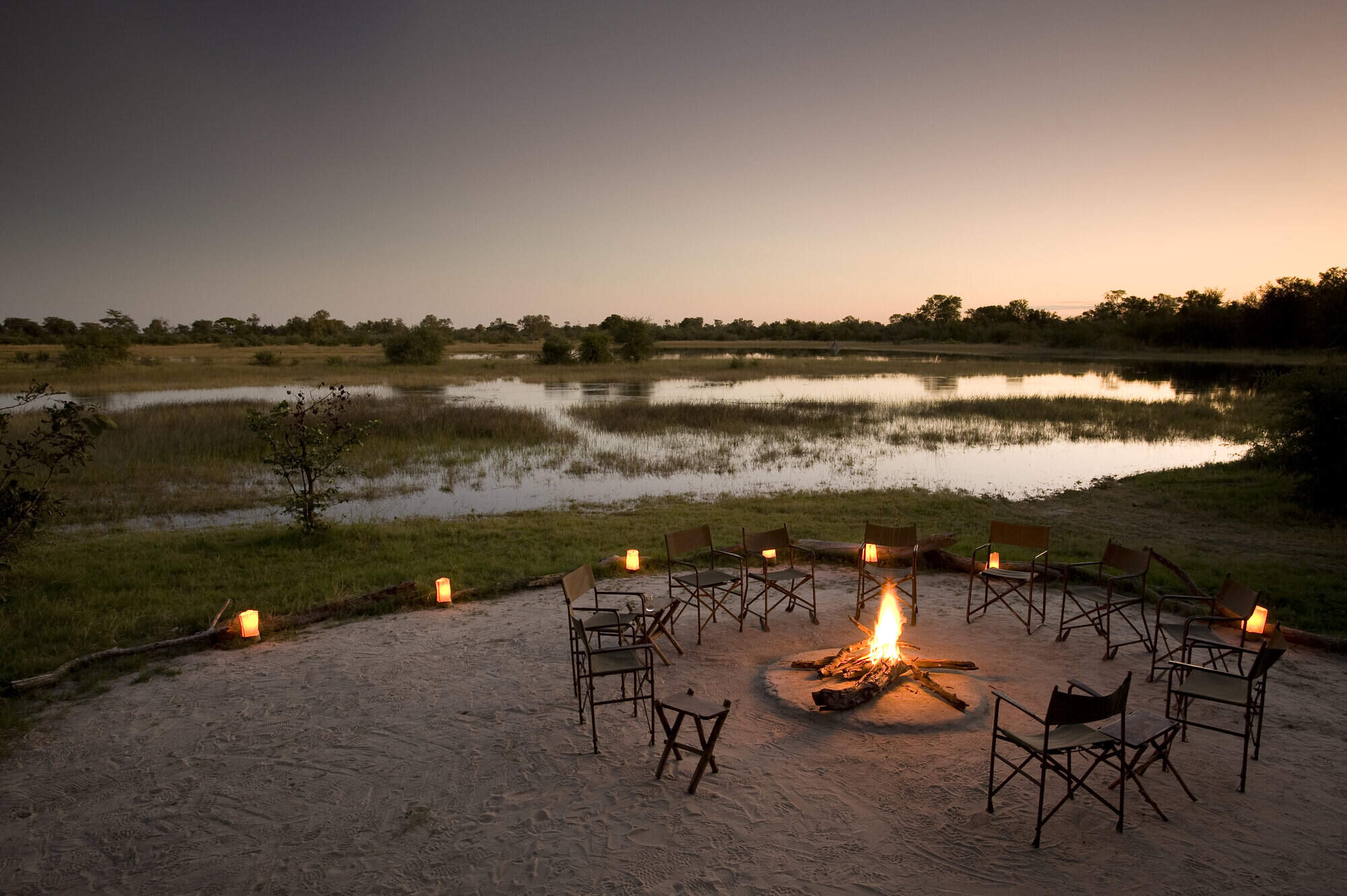
Okavango Explorers
The traditional, tented Okavango Explorers Camp offers a mix of walking, canoeing and game drives led by great guides in a wildlife-rich area.
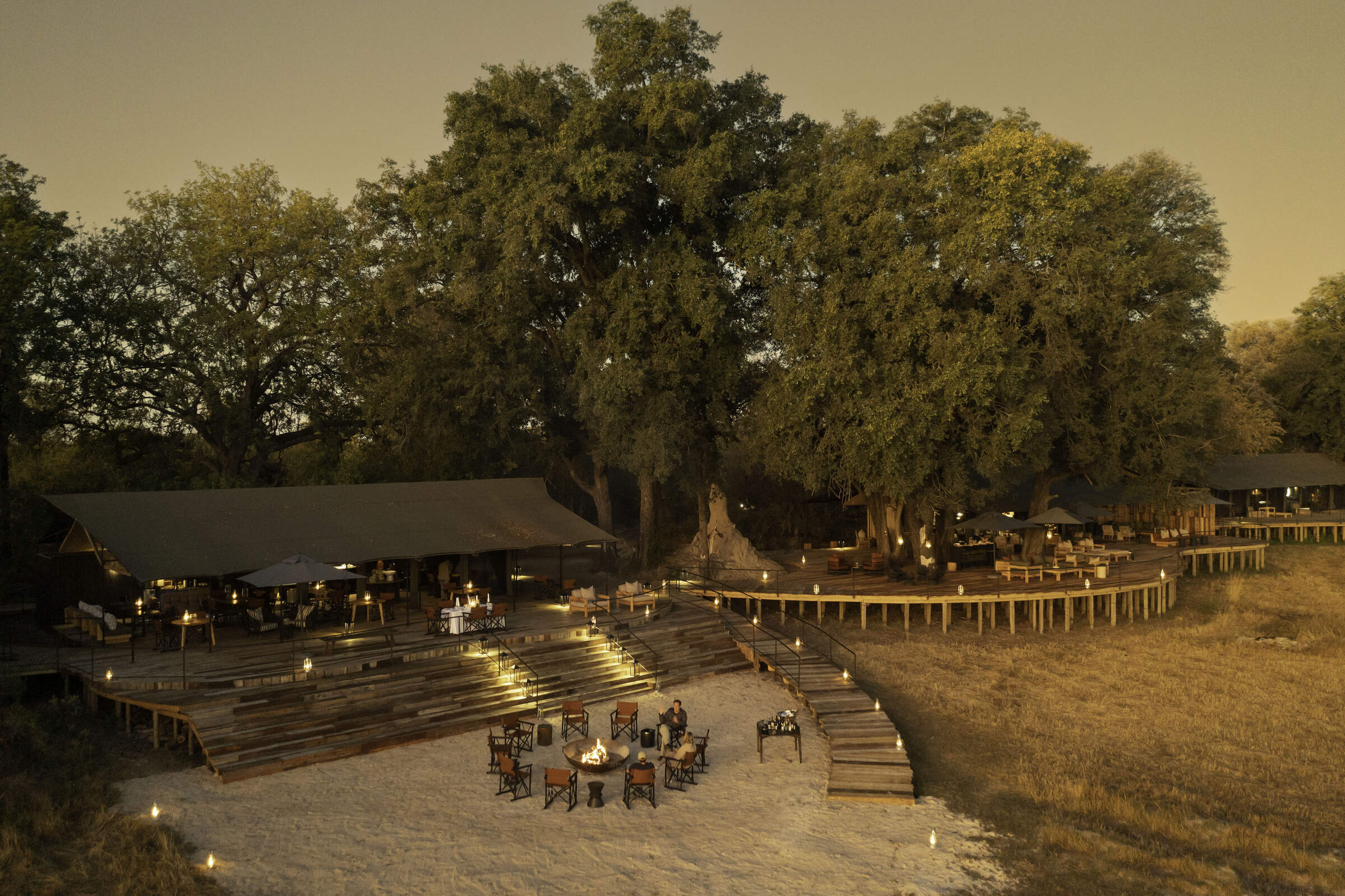
Kiri Camp
Kiri Camp is the latest Okavango offering from the excellent team behind Machaba. In an exciting new location in the heart of the Delta we cannot wait to visit this new camp.
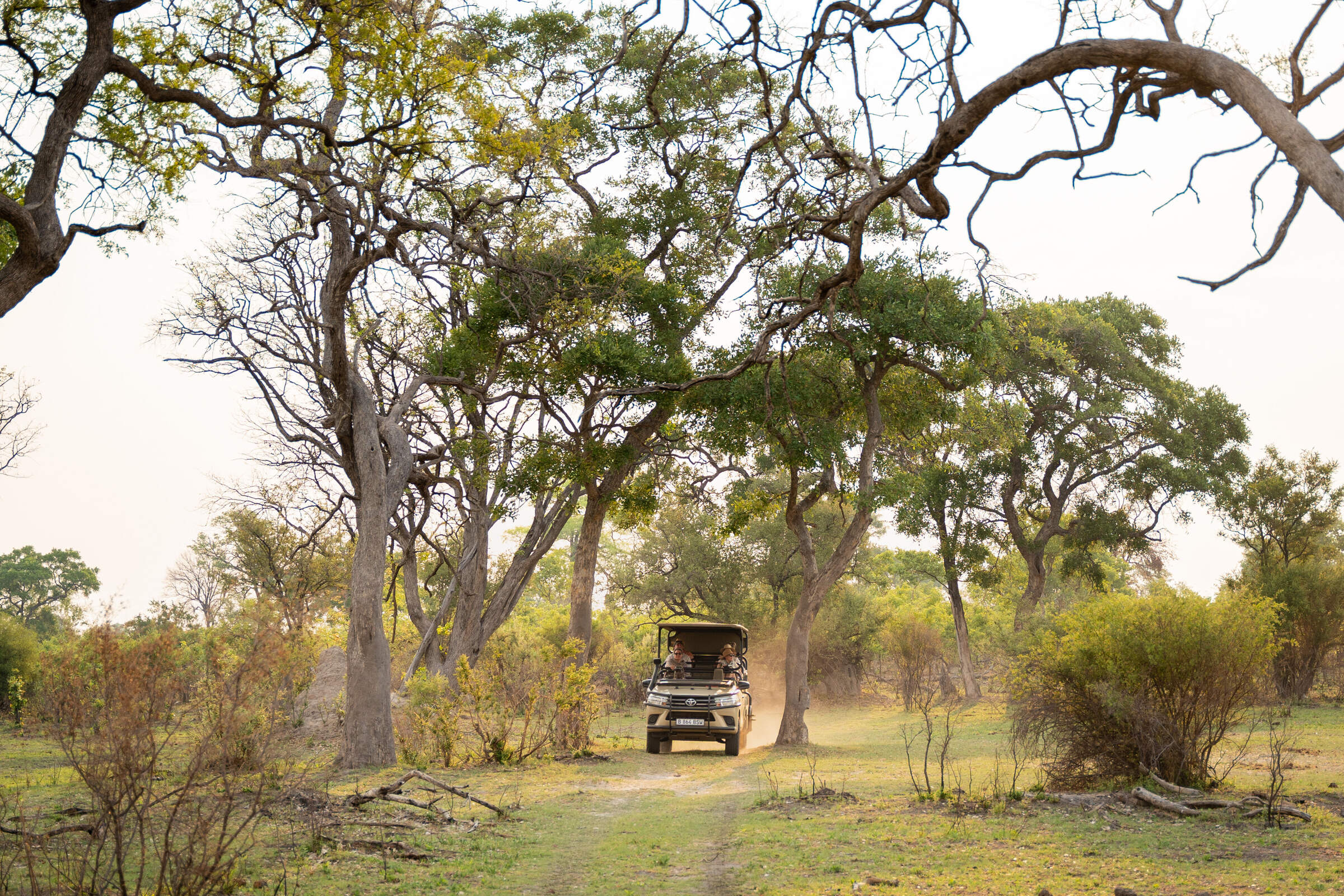
Karangoma
New for 2024, Karangoma is a classic, tented camp offering walking, canoeing and game drives, in partnership with the local Bukakwe San clan.
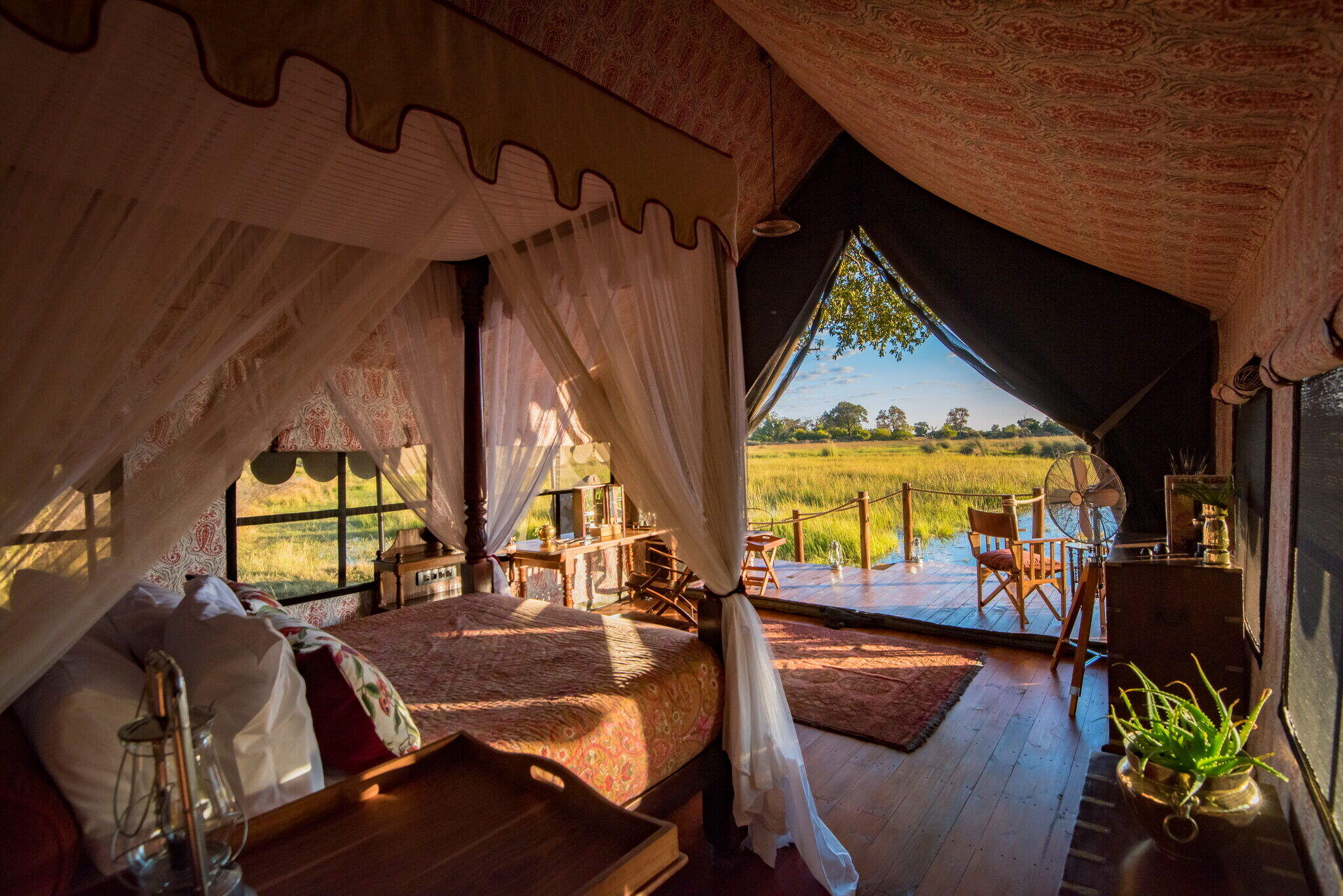
Duke’s Camp
On a remote island within a large concession, the romantic Duke's Camp and smaller Duke’s East are nestled among mature trees overlooking wildlife-rich plains and waterways of the Okavango.
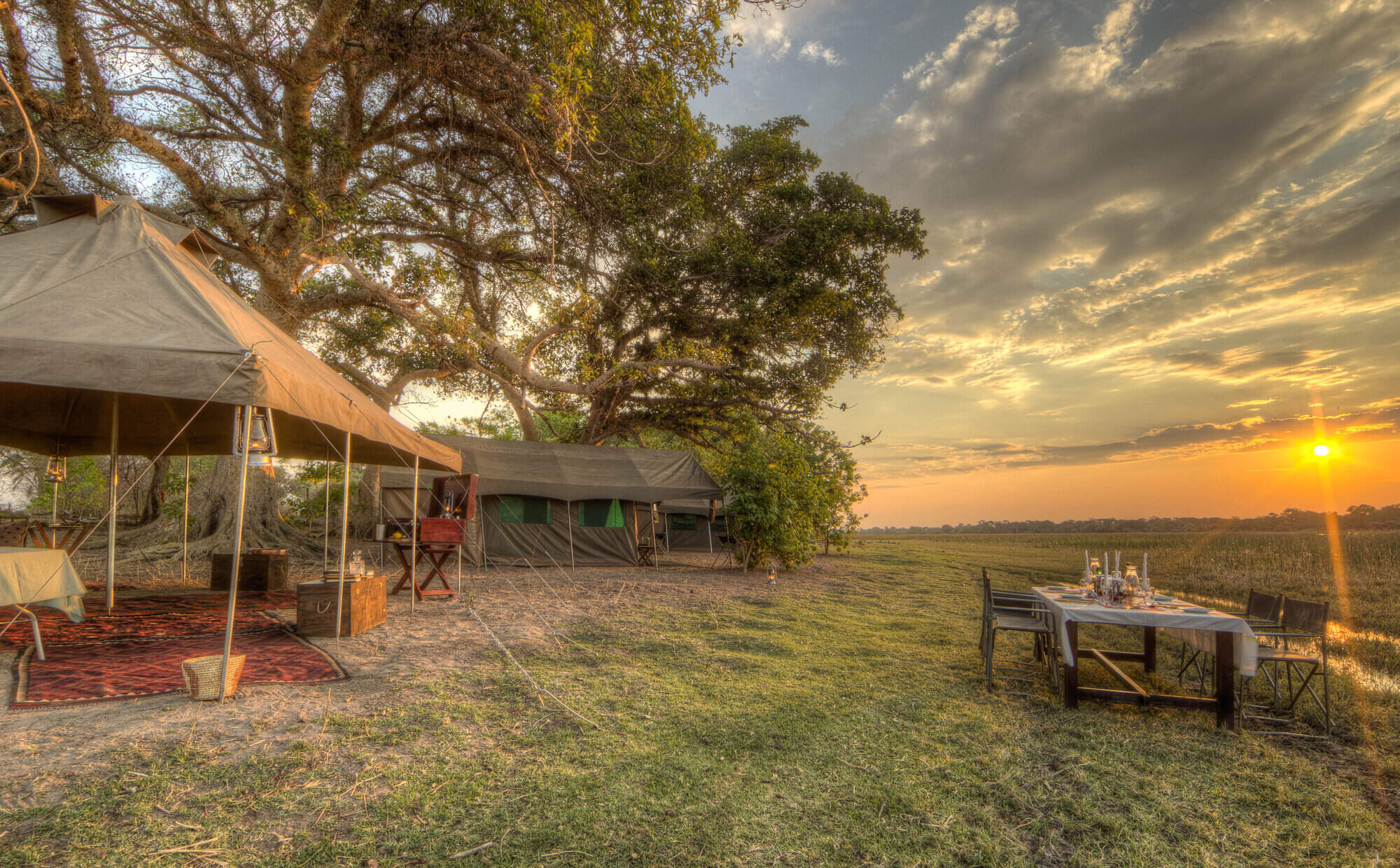
Okavango Walking Safari
The Okavango Delta Walking Safari camps in a secluded Okavango Delta Reserve where there are few roads; the ideal location for a walking trail led by an expert guide.
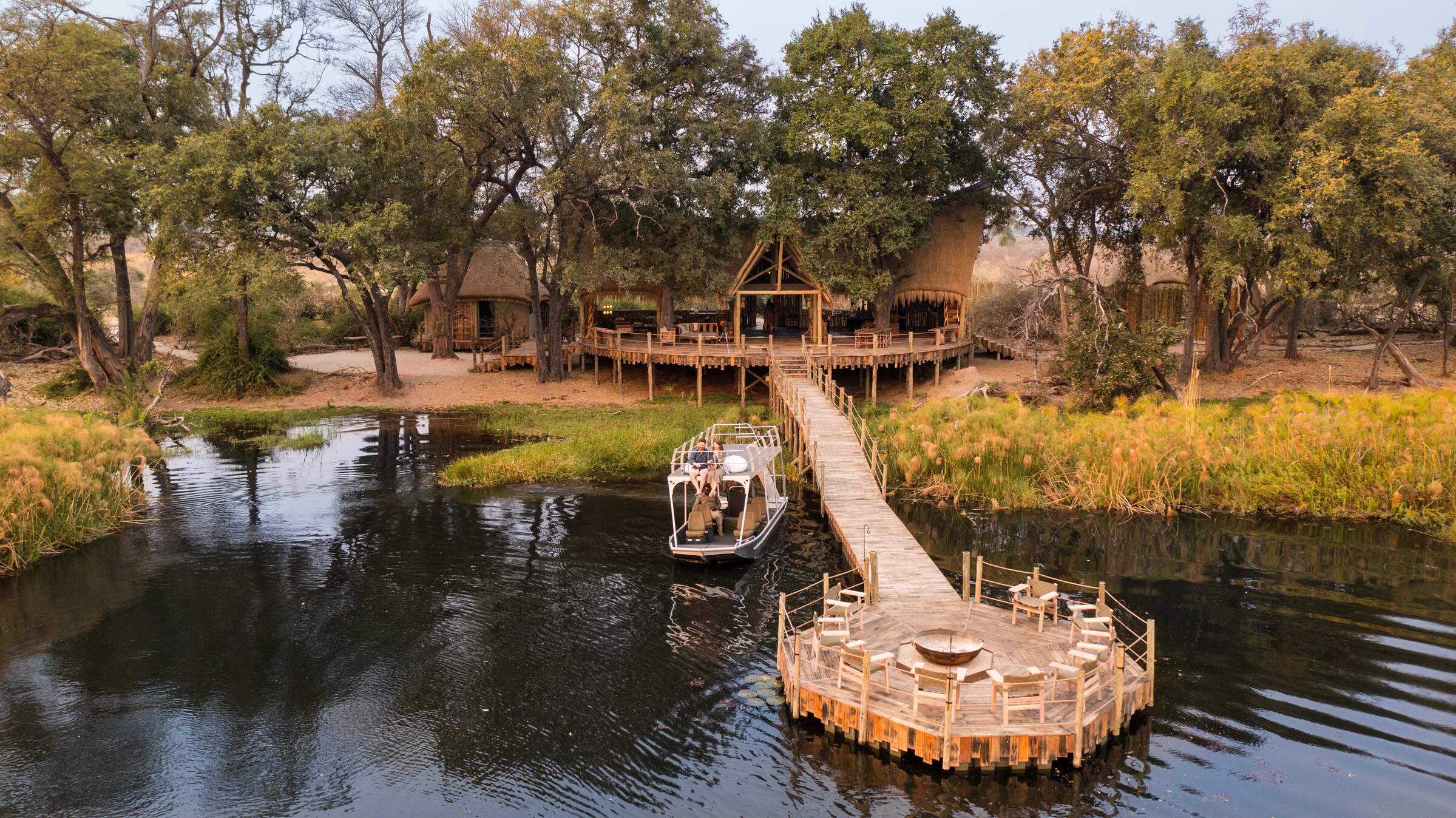
Sitatunga Island Camp
Tucked away in a pristine corner of the Okavango Delta, the exclusive Sitatunga Private Island is a water-based camp offering boating, mokoro trips and fishing.
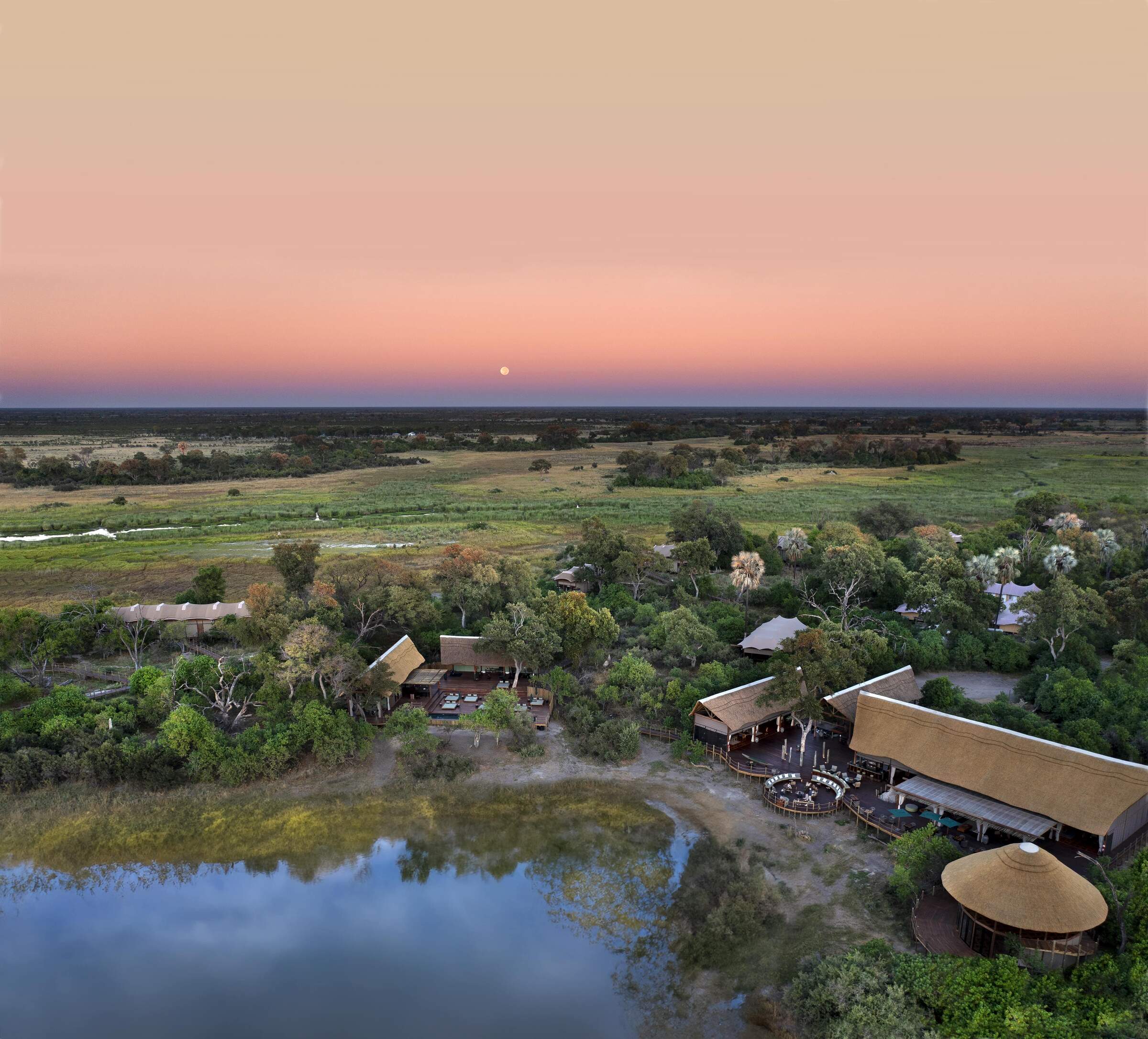
Atzaro Okavango
With a high level of tasteful luxury promised at Atzaro, we think it will be best suited to travellers seeking a touch of pampering alongside their safari.
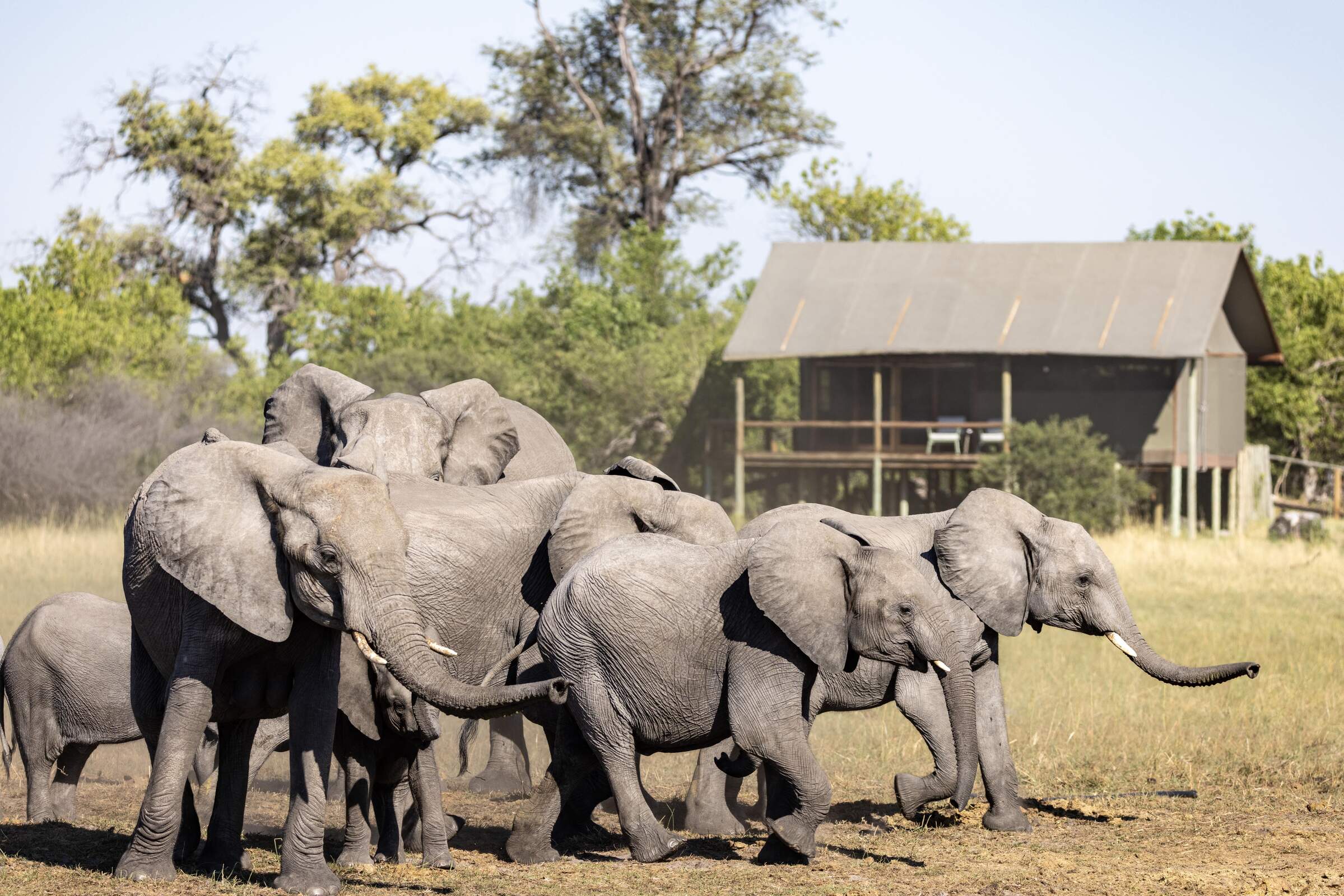
Mokolwane
Deep in the heart of the Okavango, the simple Mokolwane focuses on wildlife viewing in a large, untouched area.
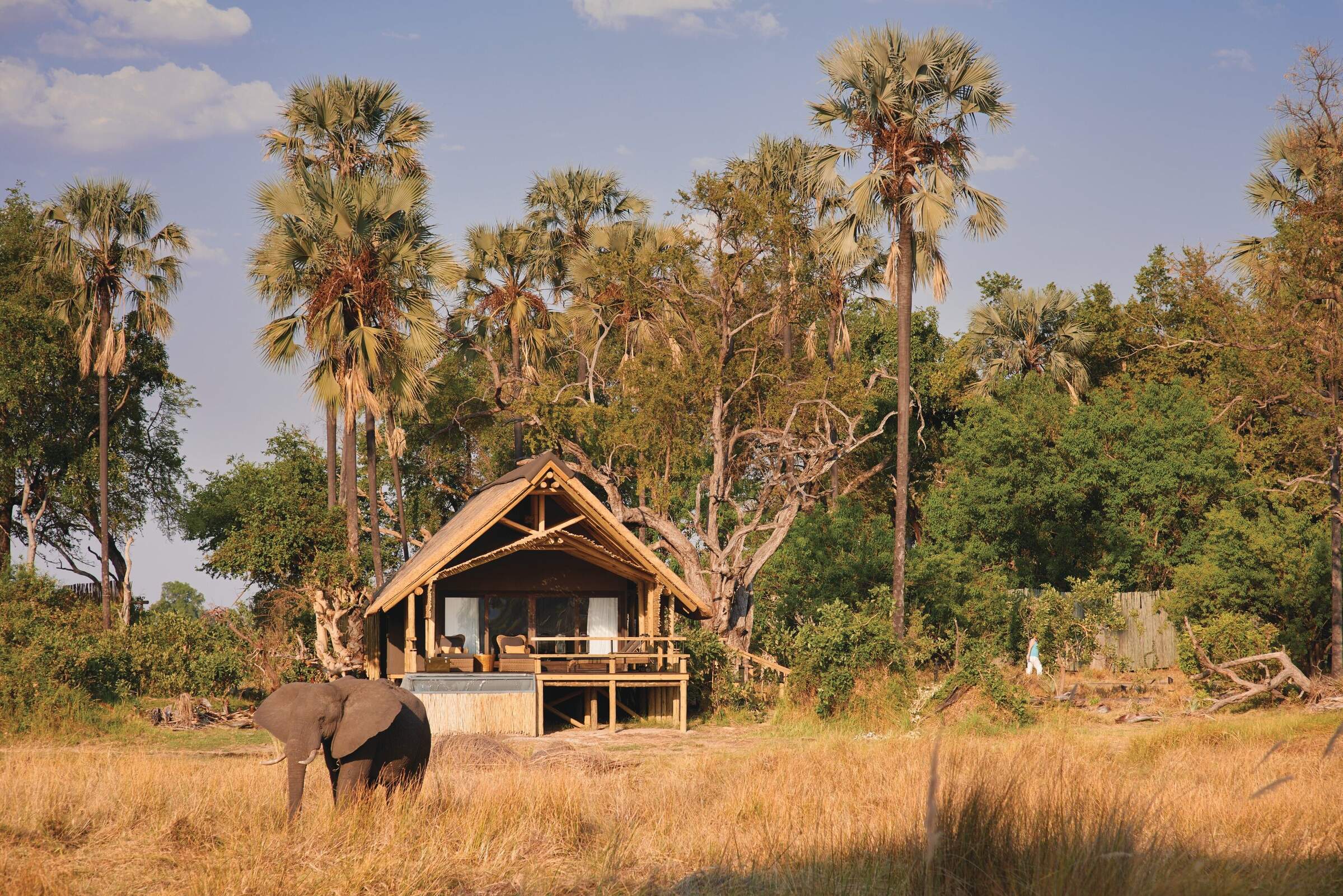
Eagle Island Lodge
Eagle Island Lodge is a luxurious camp with international-style facilities including air conditioning and intercom in each room; offering water based activities in the Okavango Delta.
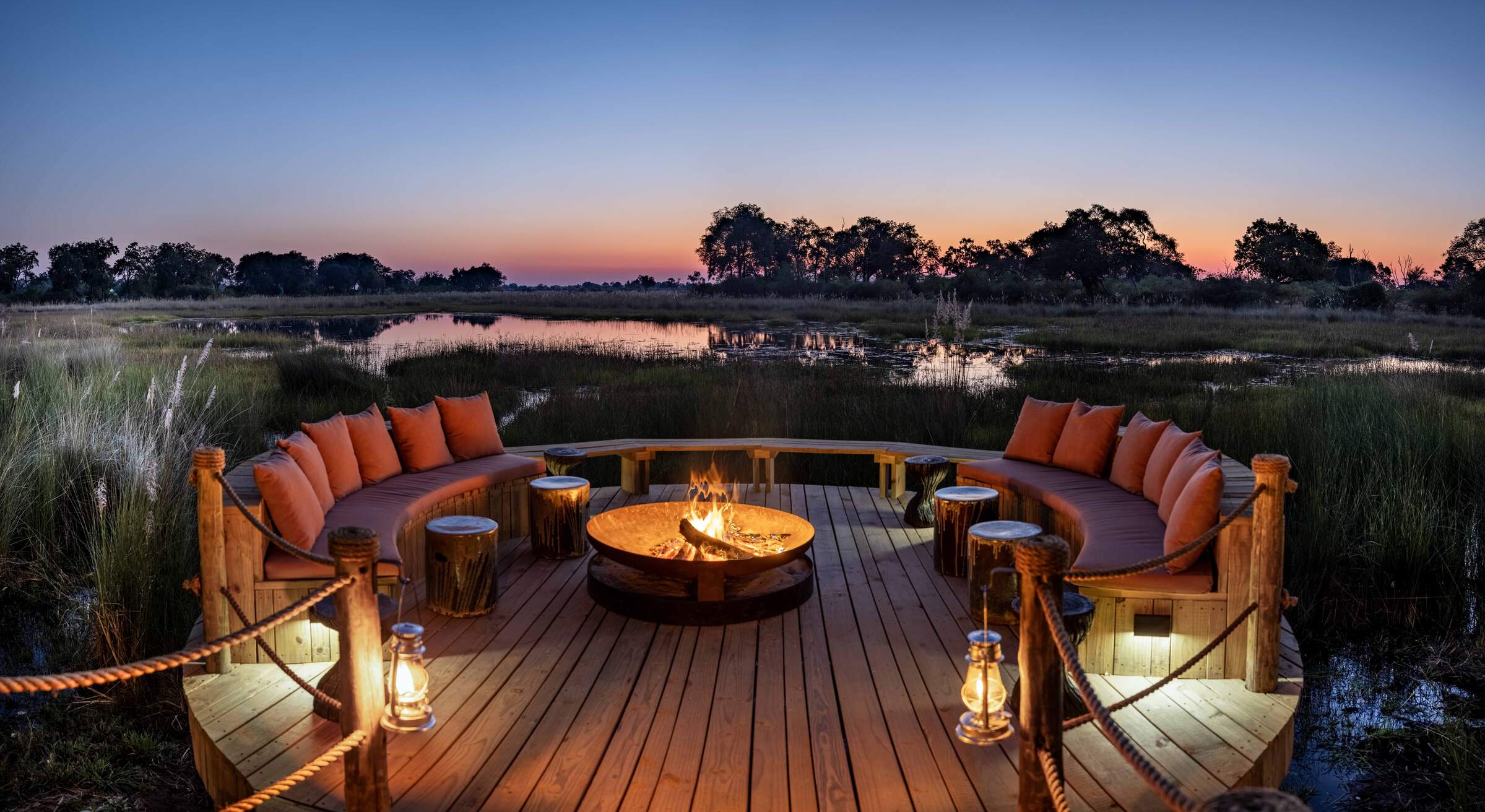
North Island Okavango
Deep in quintessentially “Okavango” territory, between deep-water and dry-land habitats, North Island focuses on a luxury safari experience with very good wildlife viewing opportunities.
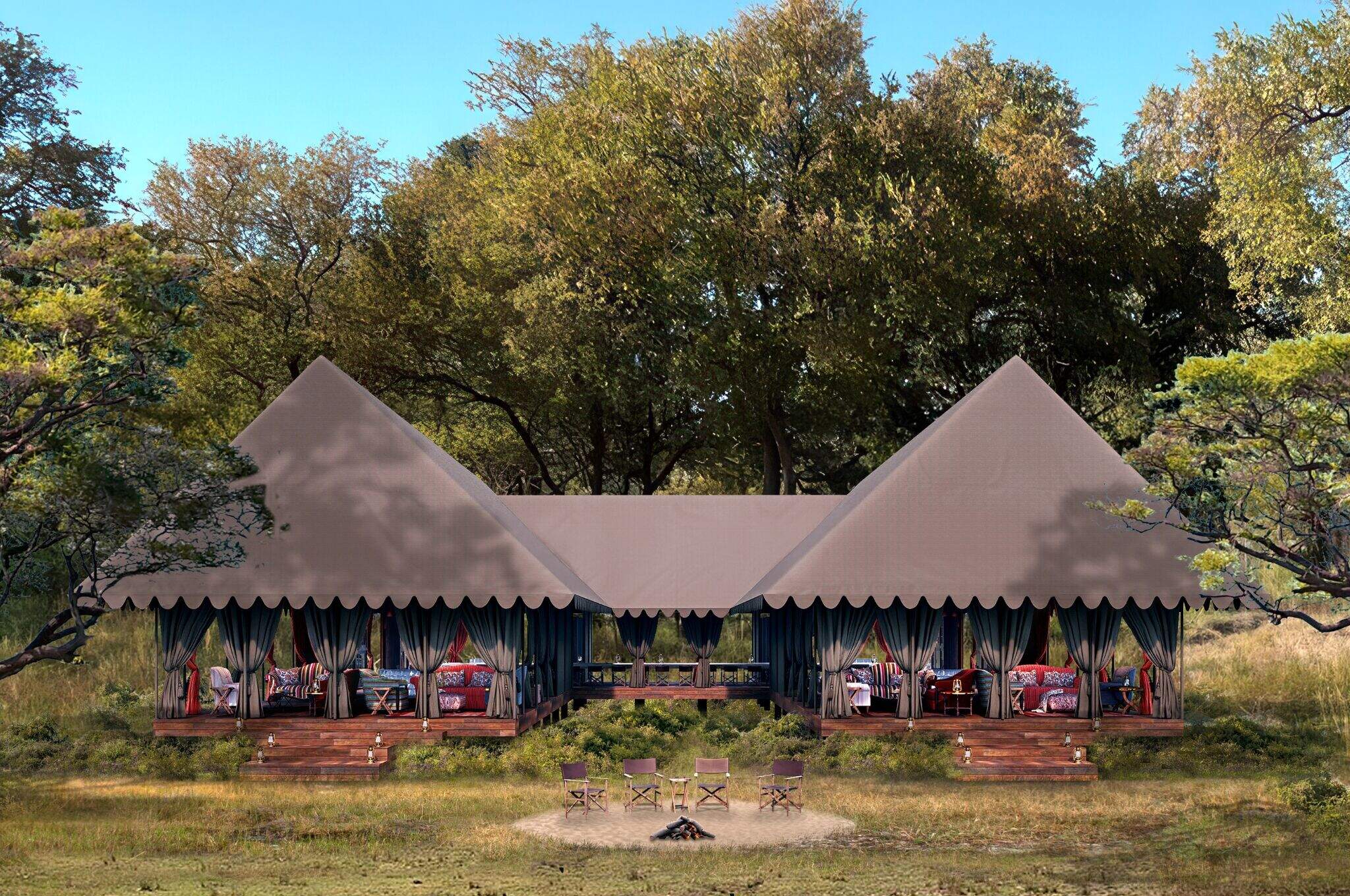
Mbamba
Deep within the northern Okavango, the classically styled Mbamba is set to open in a wildlife-rich private concession in April 2025.
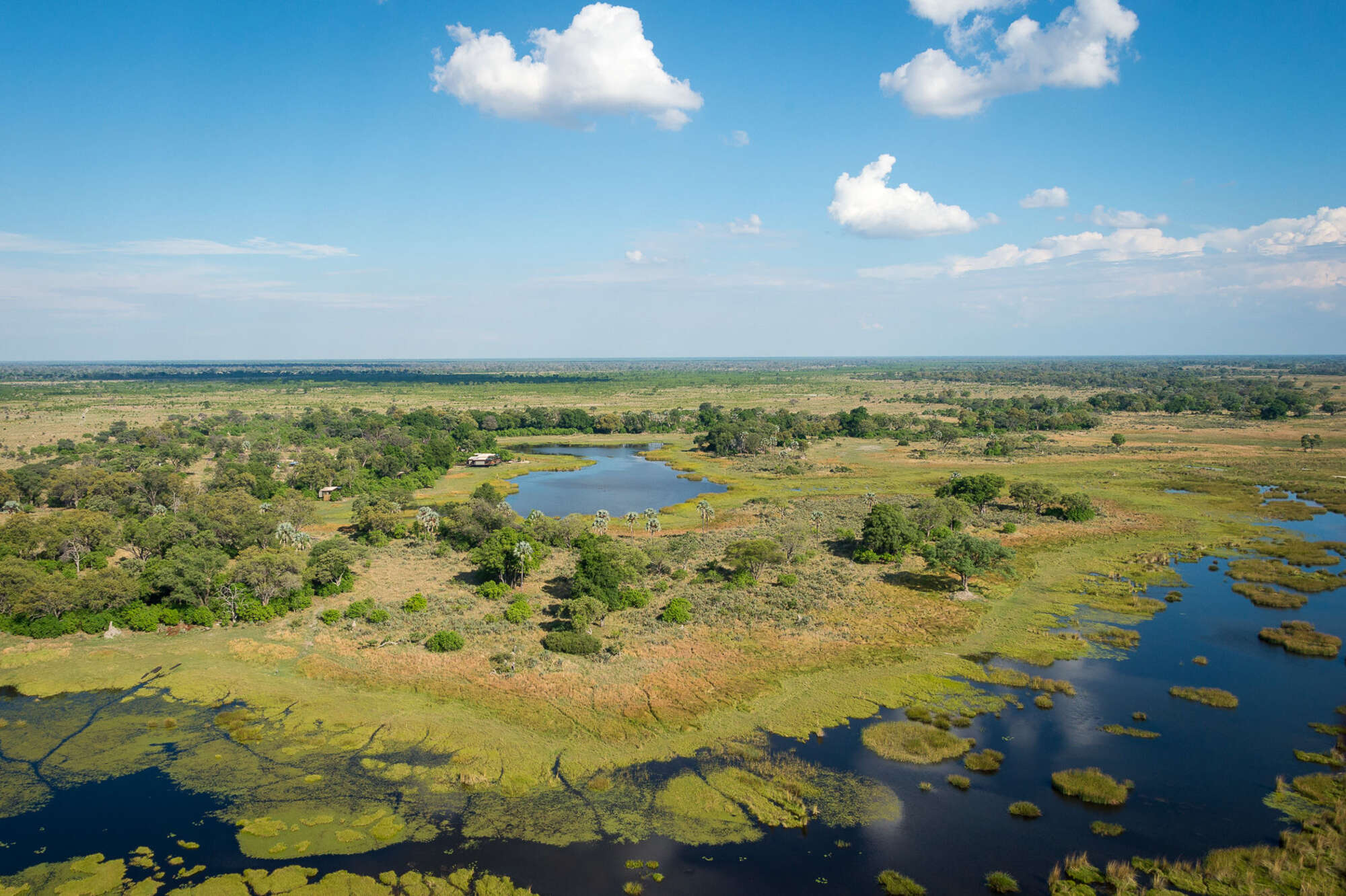
Qorokwe Camp
Luxurious and contemporary, the relatively new Qorokwe Camp is a gem in the Okavango Delta, offering land- and occasionally water-based activities in a prime wildlife area.
When to go to Okavango Delta Safari Reserves
Our month by month guide: What it's like to visit Pelo Camp in Okavango Delta Safari Reserves
Jan
Feb
Mar
Apr
May
Jun
Jul
Aug
Sep
Oct
Nov
Dec
Okavango Delta Safari Reserves in January
January marks the peak of the rainy season in the Okavango Delta. Evening rains are often short but heavy, accompanied by occasional dramatic thunderstorms. Temperatures remain high, although cooler than the preceding months of October to December. Wildlife can be harder to spot as animals spread out across the lush floodplains.
This month is a birdwatcher’s paradise, with migratory species in abundance over flooded areas. Rising water levels in parts of the Delta make mokoro safaris possible, offering serene and immersive experiences. The vibrant greenery and dramatic skies provide stunning opportunities for photography. With relatively low rates and fewer visitors, January is ideal for those seeking a quieter, budget-conscious Botswana safari.
- Warm temperatures with frequent evening showers
- Birdlife at its most spectacular in the Delta
- Wildlife dispersed, but insects and smaller creatures abound
- Excellent availability in Delta lodges and camps
Our view
A good time to visit, with pros & cons
Weather in January
Okavango Delta Safari Reserves in February
February mirrors January’s weather patterns, with heavy rains and slightly cooler temperatures. The Delta’s landscape is at its greenest and teeming with life. Smaller animals, insects, and vibrant birdlife dominate, as many species raise their young. The rains create temporary pools and waterholes, further dispersing larger game, while thick vegetation and tall grass adds to the challenge of spotting big wildlife.
However, Moremi Game Reserve and select areas of the Delta still offer excellent game viewing opportunities. Rising water levels enhance water activities, with boat safaris providing unique access to the Delta’s watery beauty. February is particularly rewarding for photographers seeking lush landscapes and dramatic skies and birdwatchers, with many migratory species present.
- Warm with occasional thunderstorms
- Many animals with young in the Delta
- Big game dispersed throughout wetlands
- Big game dispersed, but viewing improves in drier areas
- Lower visitor numbers and great lodge availability
Our view
This is not a great time to visit
Weather in February
Okavango Delta Safari Reserves in March
March marks the gradual end of the main rainy season in the Okavango Delta. Sunny days become more frequent, with occasional afternoon thunderstorms. The Delta remains lush and vibrant, with wildlife activity increasing as animals finish raising their young and begin congregating around permanent water sources.
Rising water levels make boat safaris a highlight, offering intimate access to the Delta’s waterways. Birdwatching is excellent, with both resident and migratory species thriving. With fewer visitors, March offers a quieter, more personal safari experience.
- Rains taper off but temperatures remain warm
- Occasional small thunderstorms in Delta
- Wildlife begins congregating around water sources
- Ideal conditions for boat safaris
- Few tourists and attractive rates at camps
Our view
A good time to visit, with pros & cons
Weather in March
Okavango Delta Safari Reserves in April
April brings clearer skies to the Okavango Delta, with the landscape remaining green and lush. Night temperatures begin to drop, especially in the southern Delta. The annual floods from Angola start to flow through the northern Delta, filling channels and lagoons, creating ideal conditions for water-based activities like boat safaris.
Wildlife viewing improves as vegetation thins and predator activity increases with cooler evenings. Moremi Game Reserve and the private concessions offer rewarding game drives, and walking safaris on the larger islands, such as Chief’s Island, become popular during this time. Birdwatching remains excellent, with many migratory species still present. April’s combination of pleasant weather, wildlife activity, and relatively low rates makes it a rewarding time to visit.
- Cooler evenings and occasional light showers
- Floodwaters begin to fill Delta channels
- Predator-prey interactions increase
- Ideal for walking safaris and boat trips
- Popular shoulder season, rates fairly low
Our view
A good time to visit, with pros & cons
Weather in April
Okavango Delta Safari Reserves in May
May is a popular time to visit the Okavango Delta, marking the last month of the shoulder season. The annual floods continue to spread through the Delta, transforming the landscape. Cooler mornings and evenings encourage predator activity, while thinning vegetation makes wildlife spotting easier, though some tall grasses may still obstruct views.
May offers excellent photographic opportunities with clear, crisp air. It's a favourite time for many visitors, combining good wildlife sightings with pleasant weather. Camp bookings throughout the Delta fill up quickly during this period.
This is a perfect month for scenic flights, offering breathtaking views of the advancing floodwaters. Mokoro trips through the Delta’s tranquil waterways provide a unique perspective on the environment. Camps start to fill quickly as the Delta’s combination of pleasant weather and excellent wildlife sightings makes it a favourite among safari-goers.
- Cool mornings and evenings with little rain
- Improved game viewing as Delta grasses thin
- Predator activity increasing in drier areas
- Scenic flights and water activities highly recommended
- Last month of shoulder season for camps
Our view
A very good time to visit
Weather in May
Okavango Delta Safari Reserves in June
June signals the start of the dry season in the Okavango Delta. Days are warm, with clear skies, while mornings and evenings can be cold, occasionally reaching freezing temperatures. The annual floods reach their peak, creating spectacular conditions for water-based activities like boat safaris along the Khwai River and in private concessions.
Wildlife concentrates around permanent water sources as surface water dries up, improving game viewing. The thinning vegetation and crisp, clear air make June perfect for photography. High demand for camp bookings reflects its popularity, as this month combines great game viewing and pleasant weather.
- Warm days, cold mornings and nights
- Peak floodwaters make boat safaris unforgettable
- Wildlife congregates around permanent water sources
- Excellent conditions for photography
- High demand for camps and lodges
Our view
Fantastic: the very best time to visit
Weather in June
Okavango Delta Safari Reserves in July
July offers cool mornings and evenings with warm, sunny days, making it ideal for wildlife viewing. The floodwaters remain at their peak, providing excellent opportunities for boat safaris. Vegetation continues to thin, enhancing visibility on game drives in Moremi Game Reserve and the Okavango’s private reserves.
Large herds of elephants and buffalo are common sights as they gather near water sources. Predator sightings, including lions and leopards, increase as prey concentrates. Birdwatching is rewarding, and the crisp winter air creates stunning photographic conditions. July is one of the most popular months to visit, with many lodges fully booked well in advance.
- Comfortable days, cold mornings and nights
- Excellent game viewing and predator activity
- Moremi and Khwai areas become busy
- Private concessions offer exclusivity
- High season rates; advance bookings essential
Our view
Fantastic: the very best time to visit
Weather in July
Okavango Delta Safari Reserves in August
August remains a highly sought-after month for visiting the Okavango Delta. Nights are cool, while daytime temperatures rise gradually. Wildlife viewing is exceptional as animals concentrate near water sources, while the Delta’s floods are typically at their peak, offering picturesque settings for excellent boat safaris.
Walking safaris and game drives in areas like Moremi Game Reserve and Chief’s Island are particularly rewarding. Large herds of elephants and buffalo are common sights, and predator activity is high, with increased chances of seeing lions, leopards, and wild dogs hunting. The clear skies and lack of humidity create excellent stargazing conditions. With many travellers visiting during European and North American holidays, lodge availability can be challenging.
- Dry, warm days and cool nights in the Delta
- Fantastic wildlife viewing near water sources
- Excellent opportunities for game drives and boat safaris
- Cloudless skies, spectacular stargazing
- High demand for accommodation – book early
Our view
Fantastic: the very best time to visit
Weather in August
Okavango Delta Safari Reserves in September
September is a favourite for many safari-goers in the Okavango Delta. Daytime temperatures rise, but nights remain cool. The landscape transforms as greenery fades, and hazy conditions create dramatic sunsets. Wildlife viewing peaks as animals cluster around permanent water sources, with especially large numbers of elephants and buffalo. This concentration of prey attracts predators, increasing chances of witnessing exciting hunts.
The return of migratory birds enhances birdwatching. Water levels begin to recede, but boat cruises are still possible. Dusty conditions may challenge photographers, but the stunning landscapes and wildlife action more than make up for it.
- Warm days, cool nights in the Delta
- Prime month for Okavango wildlife viewing
- Migratory birds return, enriching birdwatching
- Spectacular sunsets and dramatic scenery
- High season rates, many Delta camps full
Our view
Fantastic: the very best time to visit
Weather in September
Okavango Delta Safari Reserves in October
October is the hottest and driest month in the Okavango Delta. Wildlife concentrates around the last remaining water sources, creating some of the most dramatic game viewing opportunities of the year. Predator-prey interactions are frequent and visibility is excellent, making for thrilling safaris.
Walking safaris are particularly rewarding, especially on smaller islands, but early starts are essential to avoid the midday heat. Towards the end of the month, the first rains may bring relief and begin rejuvenating the parched landscape. Despite the heat, October offers excellent big-game viewing and dramatic photographic moments of animal interactions.
- Hot days, with late-month chances of rain
- Outstanding big-game viewing near water sources
- Water activities limited as floods recede
- Walking safaris provide unique experiences
- Final month of the peak safari season
Our view
Fantastic: the very best time to visit
Weather in October
Okavango Delta Safari Reserves in November
November marks the start of the green season in the Delta. Rising humidity and temperatures often lead to the first heavy rains; these are typically short, heavy showers in the late afternoon or night, creating spectacular scenes and bringing a flush of green to the parched landscape. Wildlife begins to disperse as waterholes refill, but game drives still offer rewarding sightings.
Water levels may be low, limiting boat activities, but November is exceptional for birdwatching, with the arrival of many migratory species. Scenic flights highlight the contrast between dry and wet areas. The first two weeks are popular for travellers seeking good game viewing at lower rates as the Delta transitions into its shoulder season.
- Hot, humid days in the Delta
- Dramatic rain showers , increasing as month progresses
- Migratory birds arrive in abundance
- Wildlife watching good, but less predictable
- Shoulder season offers mid-range rates
Our view
A good time to visit, with pros & cons
Weather in November
Okavango Delta Safari Reserves in December
December sees the rainy season in full swing across the Okavango Delta, bringing some respite from high temperatures. Game viewing becomes more challenging as wildlife disperses, but great sightings can still be had. The landscape transforms dramatically, with lush vegetation sprouting across the Delta. This period is excellent for birdwatching, with numerous migratory species present.
Water levels begin to rise, gradually improving conditions for boat safaris. The green season offers unique photographic opportunities, with dramatic skies and newborn animals. December is ideal for visitors seeking a more intimate Delta experience, with fewer tourists and lower rates at many camps and lodges. The combination of wildlife, birdlife, and scenic beauty makes it a rewarding time to visit.
- Warm temperatures
- High chance of rain in short, heavy storms
- Wildlife more dispersed across Delta
- Game viewing more challenging in wetlands
- Low-season rates and fewer visitors in most Delta camps
Our view
A good time to visit, with pros & cons
Weather in December

Looking for inspiration on where to travel next?
Visit our trip chooser to explore your options and find inspiration for your perfect African adventure
Inspire me